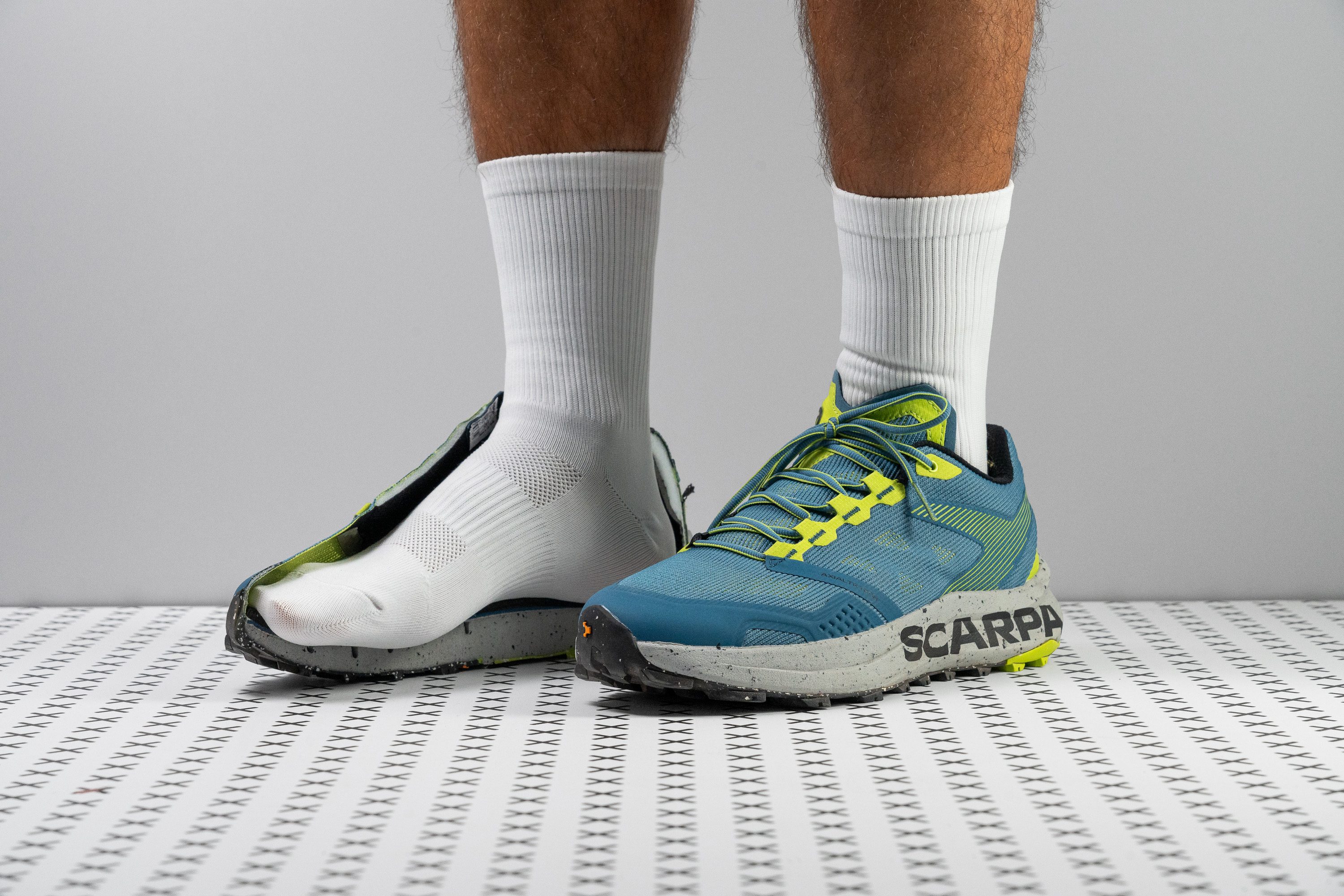Our verdict
Pros
- 100% recycled upper
- One-of-a-kind tongue
- High build quality
- Breathability
- Stable ride
- Fantastic lug design
- Works for hiking too
- Great for midfoot strikers
Cons
- Subpar energy return
- Noticeably heavy
- No reflective elements
Audience verdict
- Top 1% in trail running shoes
- Top 1% in neutral running shoes
Comparison
The most similar running shoes compared
+ + Add a shoe | |||||
|---|---|---|---|---|---|
| Audience score | 94 Superb! | 74 Bad! | 88 Great! | 87 Great! | |
| Price | $160 | $90 | $150 | $130 | |
| Trail terrain | LightModerate | Light | Light | Light | |
| Shock absorption | - | - | Moderate | - | |
| Energy return | - | - | Low | - | |
| Arch support | Neutral | Neutral | Neutral | Neutral | |
| Weight lab Weight brand | 11.4 oz / 322g 10.2 oz / 290g | 11 oz / 312g 11.5 oz / 326g | 10.3 oz / 292g 10.9 oz / 309g | 9.9 oz / 281g 9.9 oz / 280g | |
| Drop lab Drop brand | 6.2 mm 4.0 mm | 8.2 mm | 6.0 mm 5.0 mm | 7.2 mm 6.0 mm | |
| Strike pattern | Mid/forefoot | HeelMid/forefoot | Mid/forefoot | Mid/forefoot | |
| Size | True to size | True to size | True to size | True to size | |
| Midsole softness | Balanced | Balanced | Balanced | Soft | |
| Difference in midsole softness in cold | Normal | Small | Small | Small | |
| Plate | ✗ | ✗ | ✗ | Rock plate | |
| Toebox durability | Decent | Decent | Decent | Decent | |
| Heel padding durability | Good | Bad | Bad | Good | |
| Outsole durability | Decent | Good | Good | Good | |
| Breathability | Breathable | Moderate | Warm | Moderate | |
| Width / fit | Medium | Narrow | Narrow | Medium | |
| Toebox width | Medium | Medium | Medium | Medium | |
| Stiffness | Stiff | Stiff | Moderate | Stiff | |
| Torsional rigidity | Stiff | Moderate | Stiff | Stiff | |
| Heel counter stiffness | Moderate | Moderate | Moderate | Moderate | |
| Lug depth | 3.2 mm | 2.9 mm | 3.1 mm | 2.5 mm | |
| Heel stack lab Heel stack brand | 32.8 mm 28.5 mm | 33.8 mm | 31.7 mm 29.0 mm | 31.0 mm 32.6 mm | |
| Forefoot lab Forefoot brand | 26.6 mm 24.5 mm | 25.6 mm | 25.7 mm 24.0 mm | 23.8 mm 26.6 mm | |
| Widths available | Normal | NormalWideX-Wide | Normal | Normal | |
| Season | SummerAll seasons | All seasons | All seasons | All seasons | |
| Removable insole | ✓ | ✓ | ✓ | ✓ | |
| Orthotic friendly | ✓ | ✓ | ✓ | ✓ | |
| Ranking | #2 Top 1% | #371 Bottom 3% | #135 Top 36% | #144 Top 38% | |
| Popularity | #357 Bottom 7% | #321 Bottom 16% | #185 Top 49% | #307 Bottom 20% |
Who should buy
We think the Scarpa Spin Planet is a superb choice for trail runners because it's:
- A sturdy, well-crafted, breathable shoe from a brand outside the mainstream that will make you feel different!
- Great for newcomers to mountain terrain who need a versatile shoe capable of handling running and hiking.
- A solid pick for fans of this Italian brand who are willing to accept a heavier build in exchange for significant improvements and a truly sustainable approach.
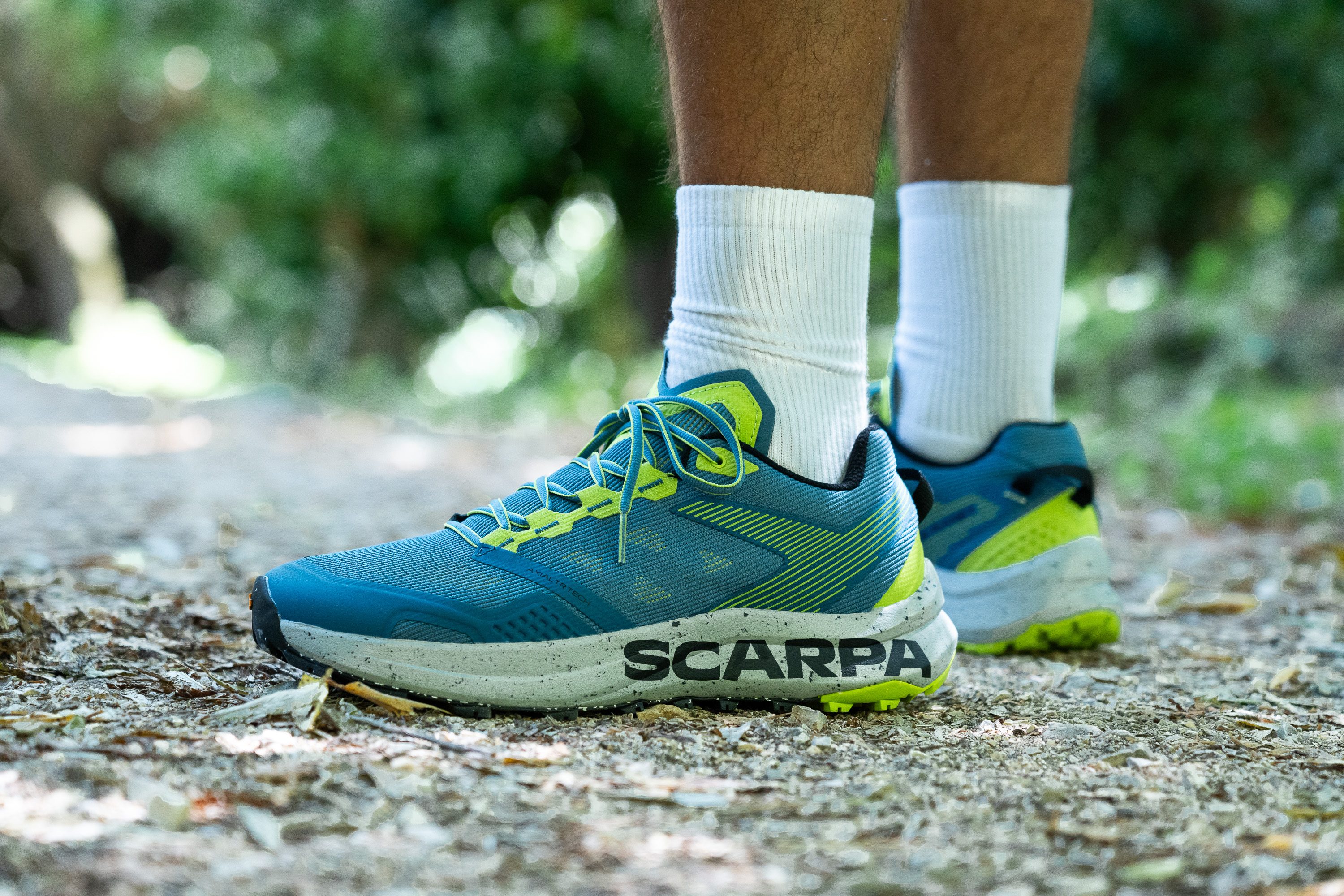
Who should NOT buy
We think the Scarpa Spin Planet falls short for those seeking a dynamic running experience. The EVA midsole, while sustainable, lacks the energy return you might expect, leaving much to be desired in terms of bounce during runs.
For runners seeking more responsiveness, we recommend considering the Nike Zegama 2 or the Saucony Xodus Ultra 3, both featuring state-of-the-art Pebax-based foams that deliver the energy return you crave.
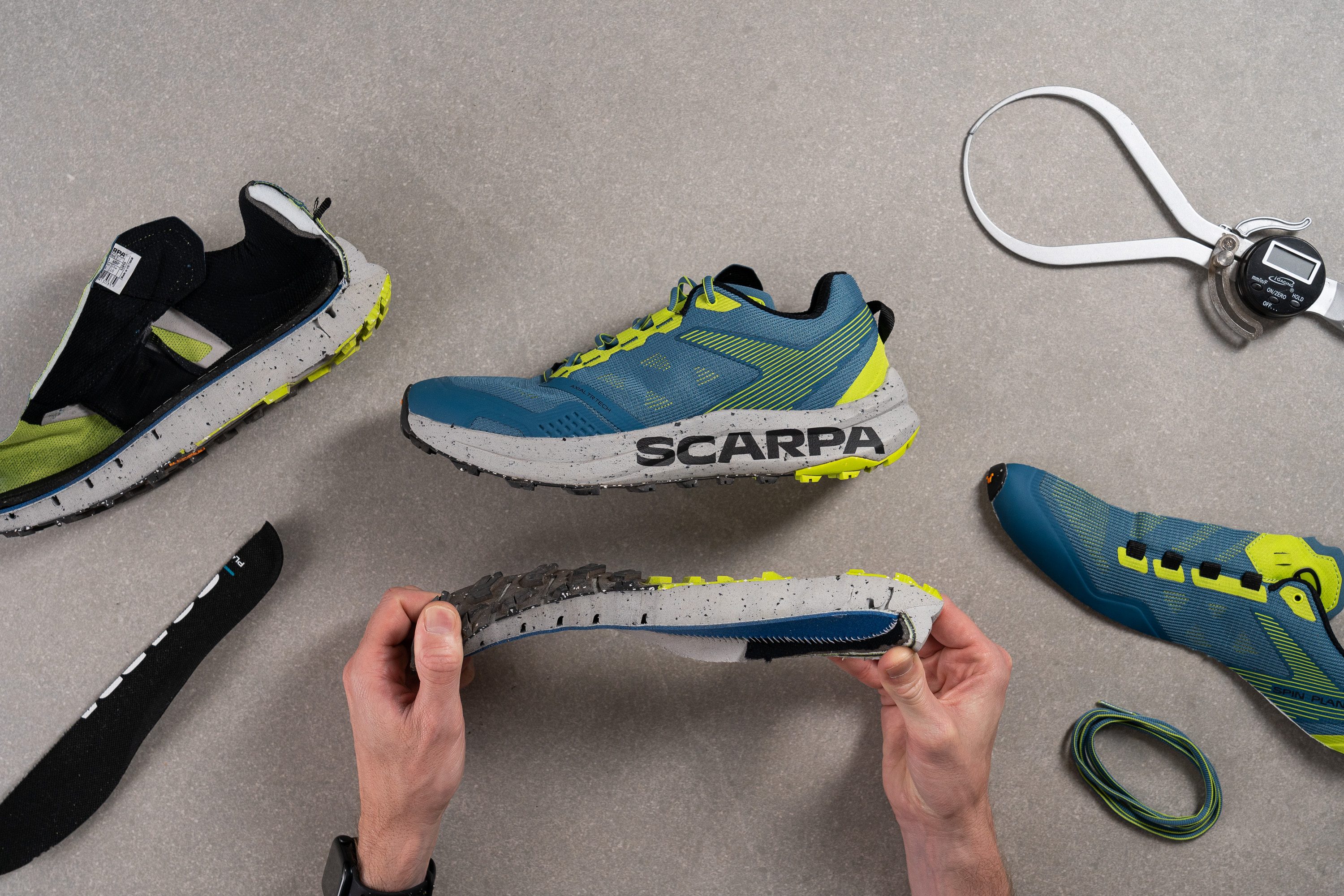
Additionally, we've found that the tapered toebox of the Spin Planet can be problematic for those with wider feet. If toe space and comfort are crucial for you, we suggest the Altra Olympus 6 as a superior alternative due to its anatomically shaped toebox and world-class upper.
Cushioning
Heel stack
We noted that the cushioning is about average at 32.8 mm, which is typical for a versatile, road-to-trail shoe.
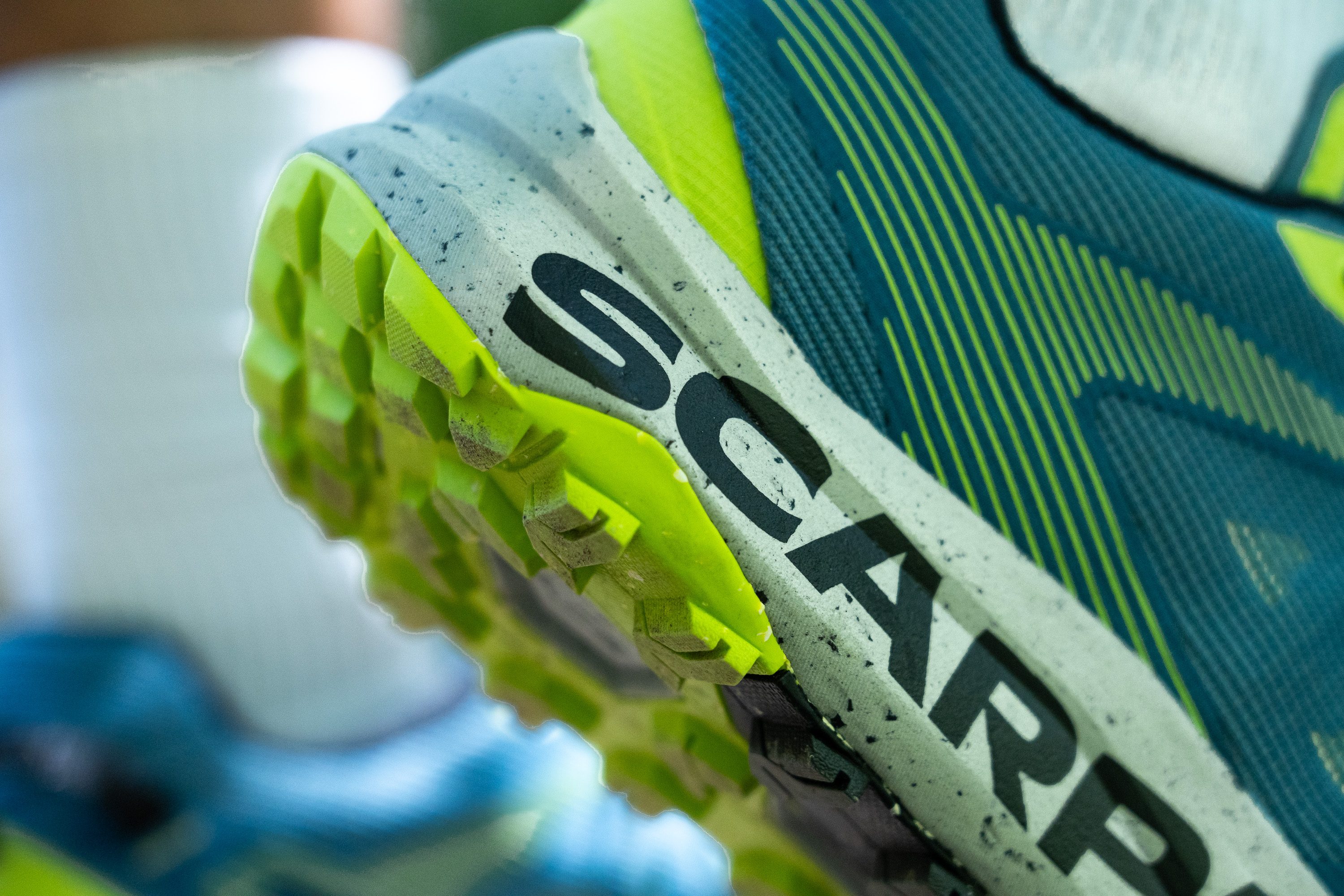
This level of padding makes the Spin Planet suitable for both short bursts and extended adventures.
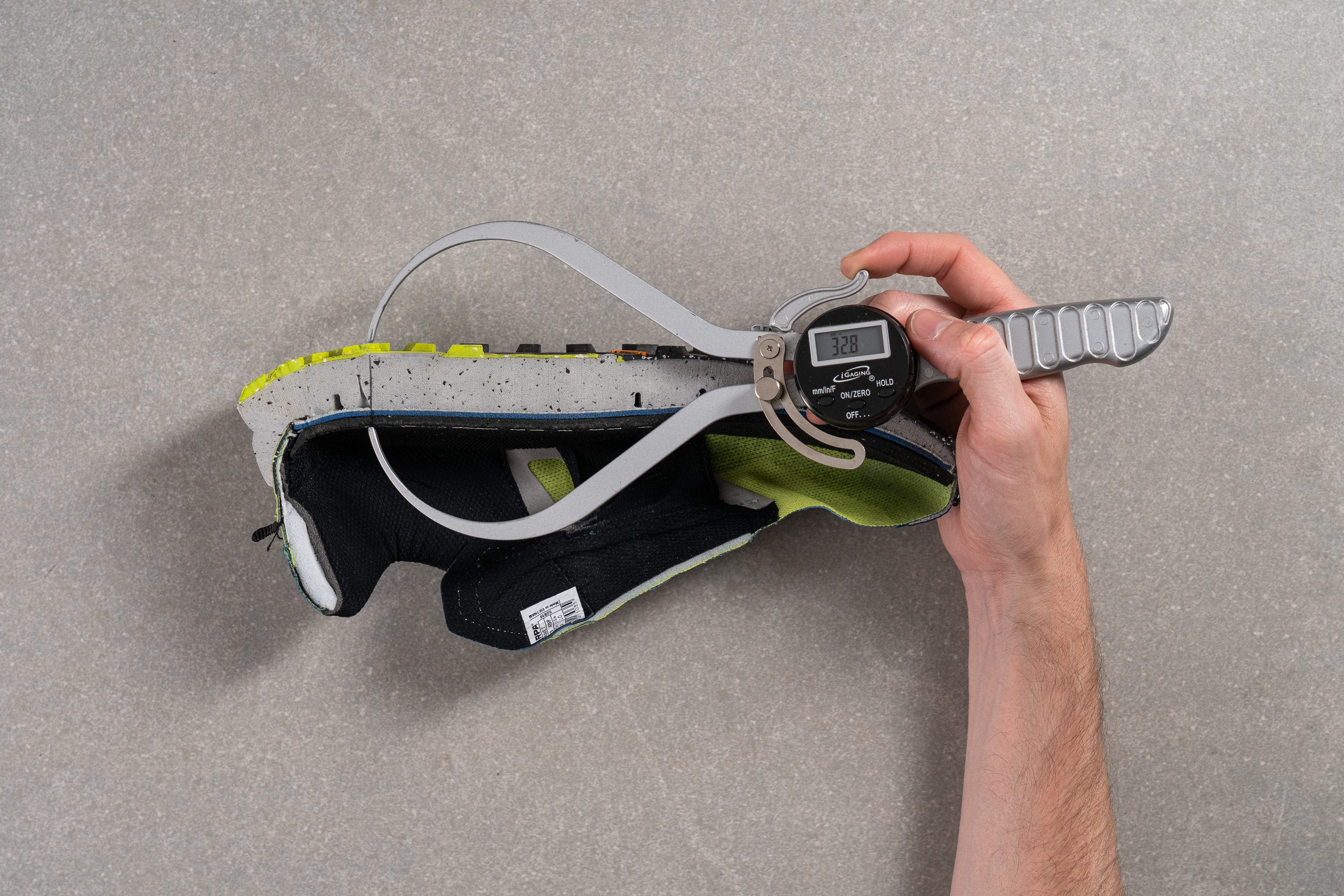
| Spin Planet | 32.8 mm |
| Average | 32.6 mm |
Forefoot stack
We also evaluated the forefoot, which measured at 26.6 mm. This is a standard measurement for a trail shoe, aligning well with its door-to-trail counterparts and providing ample cushioning for forefoot and midfoot strikers without being excessive.
However, if you're looking for more cushioning, consider a maximalist alternative like the Hoka Mafate Speed 4.
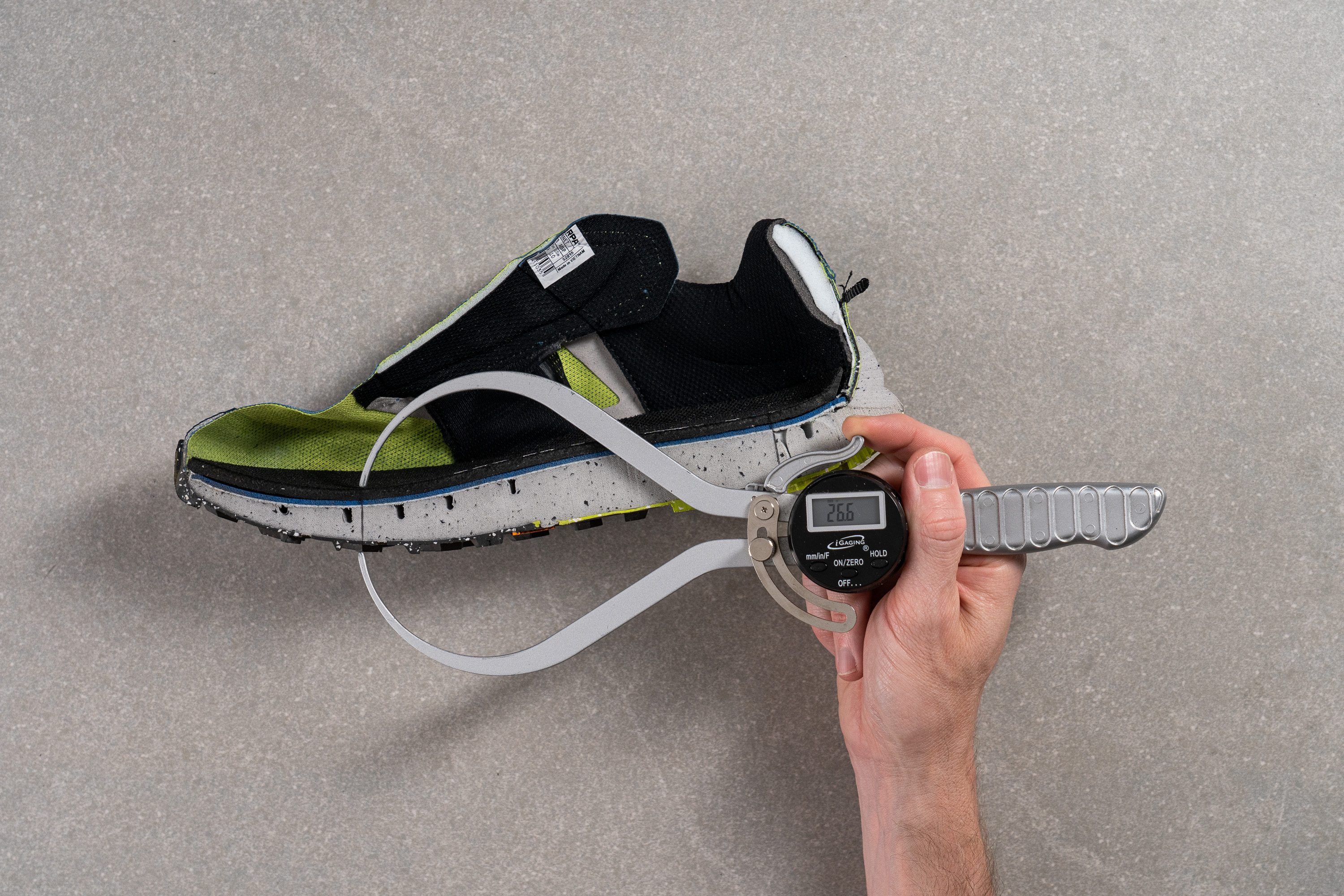
| Spin Planet | 26.6 mm |
| Average | 25.1 mm |
Drop
Scarpa claims that the Spin Planet has a 4-mm heel-to-toe drop, but our measurements indicate a slight discrepancy, as we measured 6.2 mm. However, this difference is minor and still positions the shoe as ideal for forefoot and midfoot strikers.
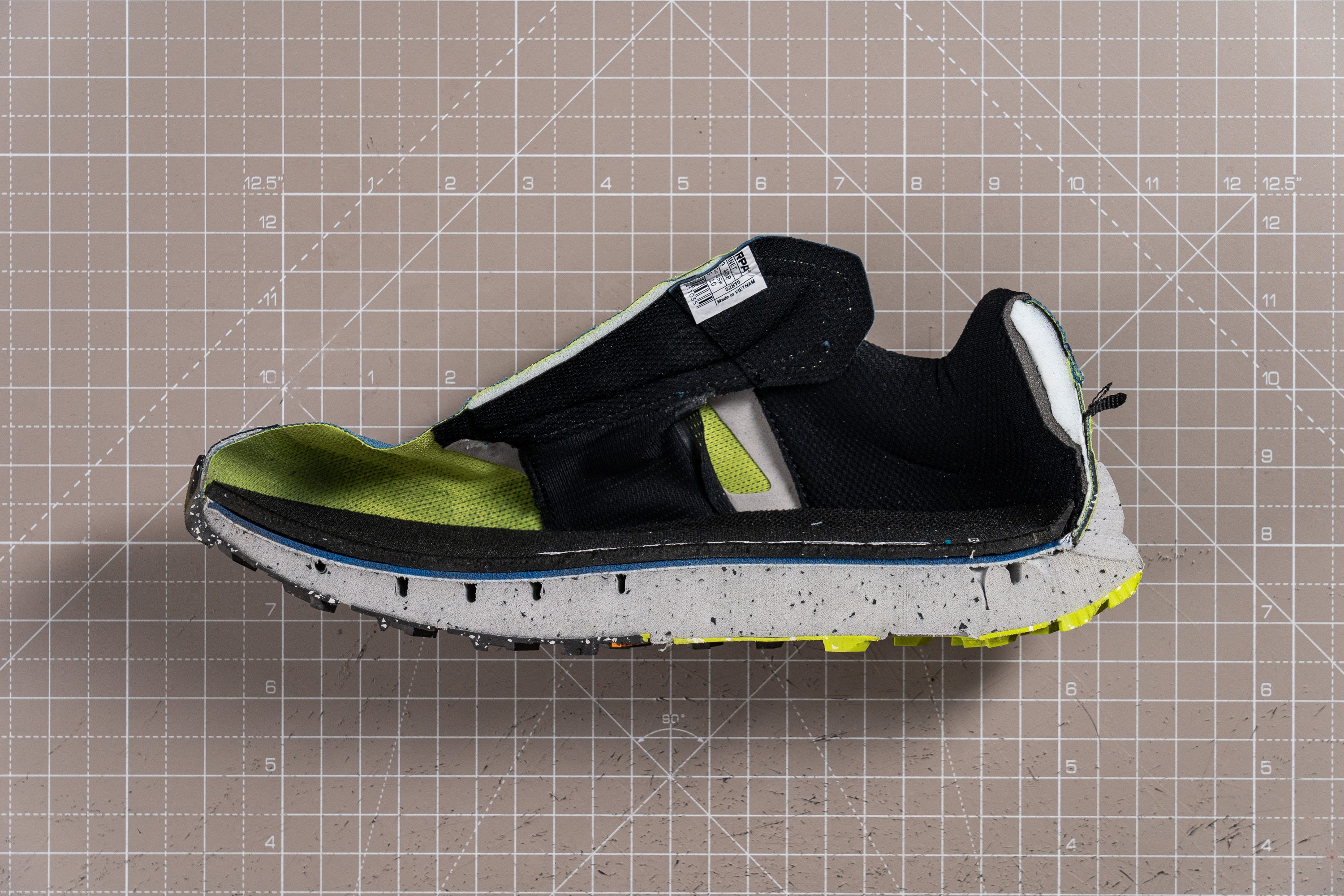
| Spin Planet | 6.2 mm |
| Average | 7.6 mm |
Midsole softness
The Spin Planet has been a polarizing shoe until now in this lab review, even in terms of its bold design.
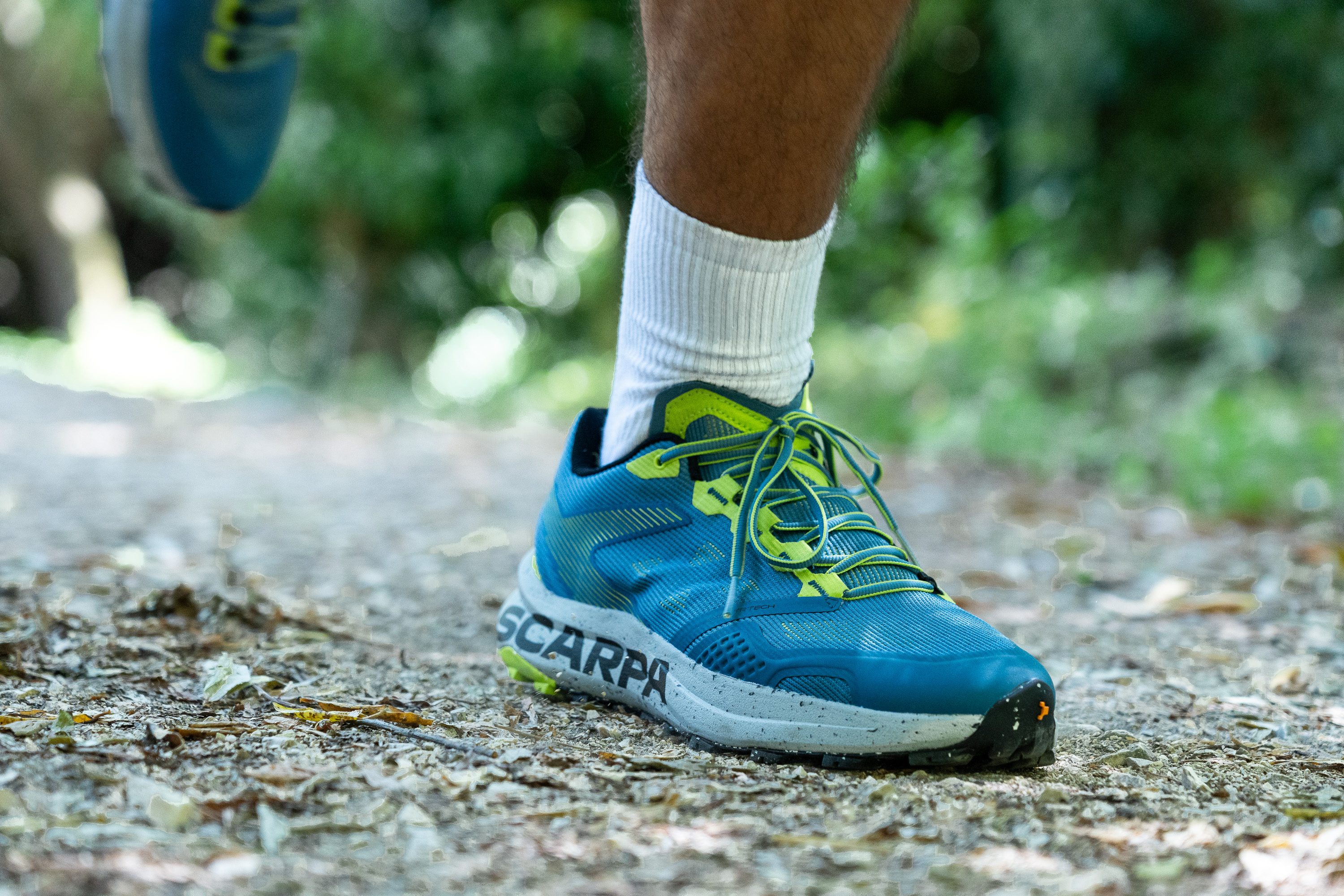
Turning to its midsole, we find more positive news for those worried about sustainability—it features 45% recycled EVA, outperforming almost any other shoe in this respect. However, it's a basic EVA midsole, so don't expect substantial bounciness.
In terms of softness, it ranks as average, which suits a trail running shoe well, providing stability without being overly firm. However, given the MSRP, we had hoped for better energy return.
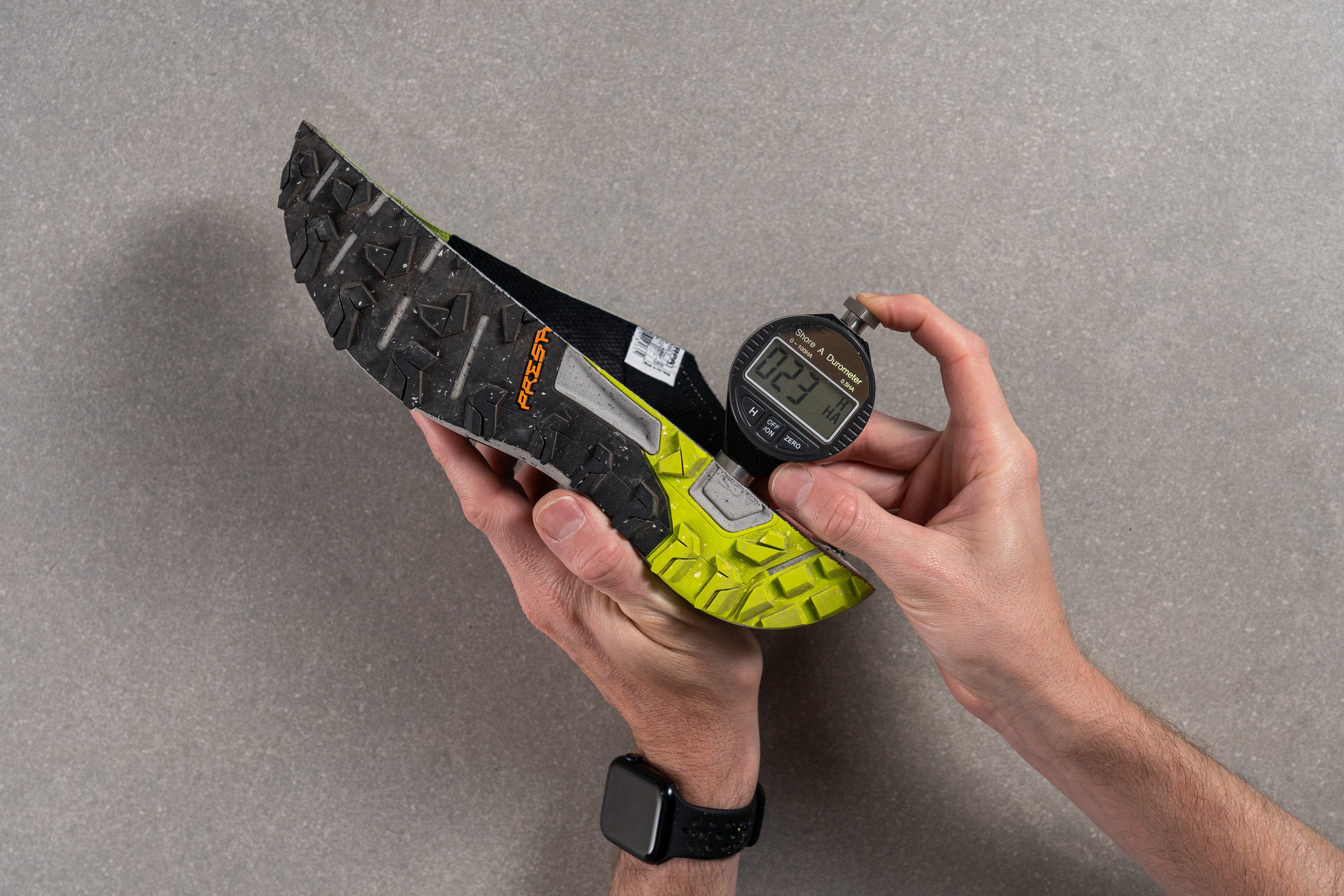
| Spin Planet | 23.0 HA |
| Average | 22.0 HA |
Rocker
A large rocker doesn't work well in a non-maximalist trail shoe, and fortunately, Scarpa designed only a subtle curvature in the heel and a slight toe spring in the forefoot.
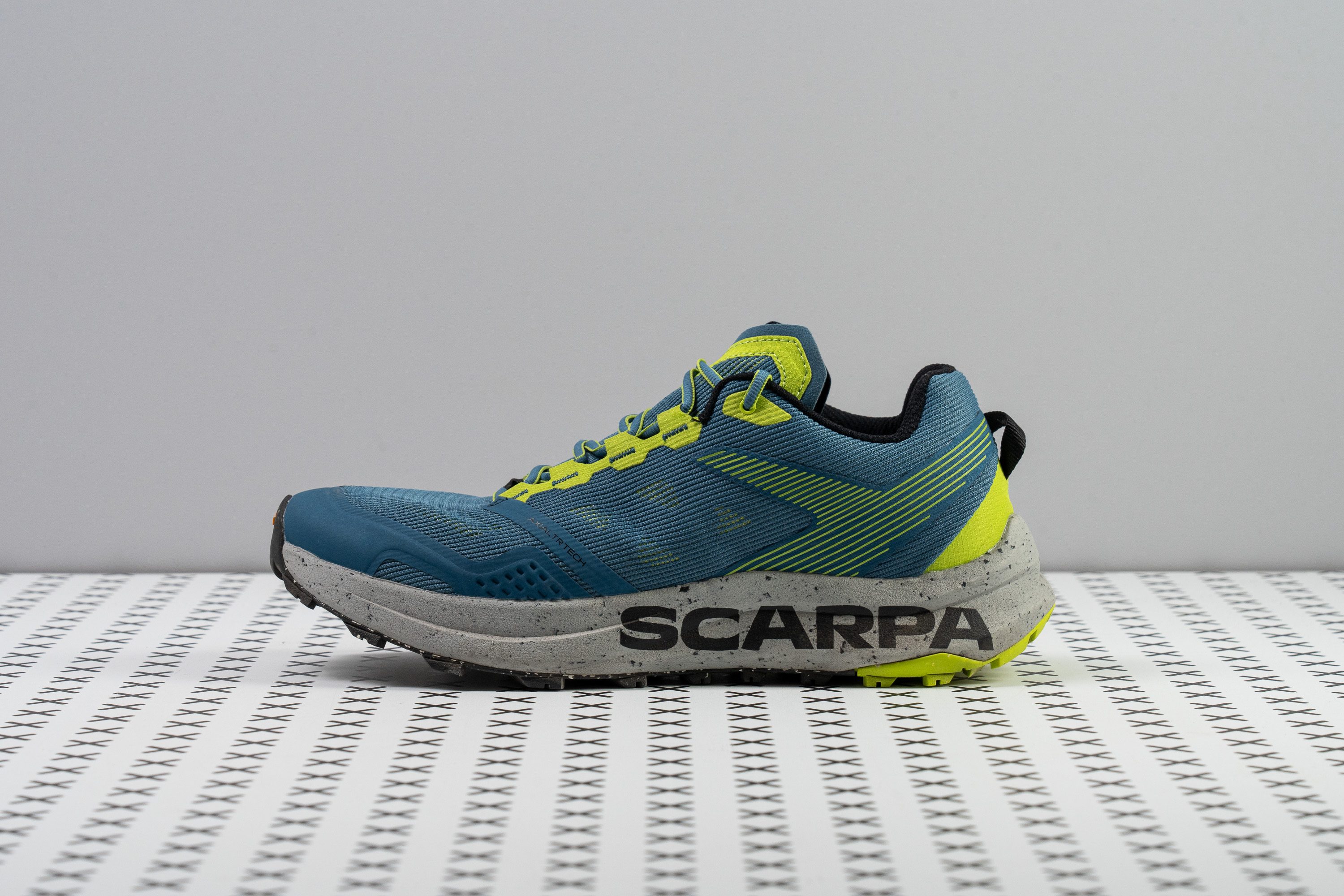
This small rocker modestly aid forward momentum without being intrusive or bothersome during walking or hiking. And we like it.
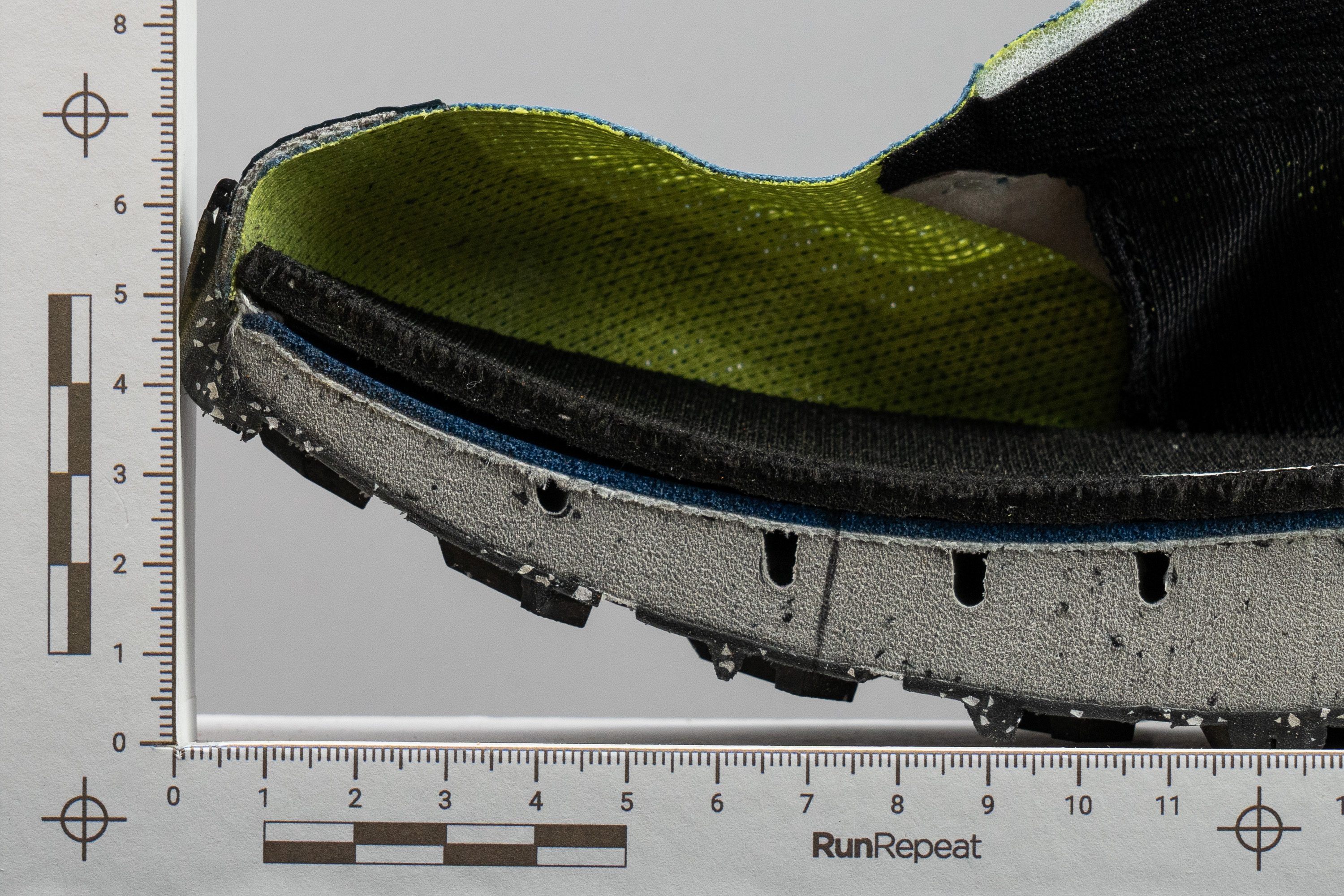
Size and fit
Size
Scarpa Spin Planet fits true to size (17 votes).
Internal length
| Spin Planet | 269.4 mm |
| Average | 269.0 mm |
Width / Fit
Despite the narrow overall dimensions of the shoe, we were surprised to find that its upper is quite wide at its widest part—101.8 mm. This was a bit unexpected also because of our initial feelings with the shoe.
Additionally, we discovered that the upper provides enough space for vertical toe movement, which is absolutely crucial for those engaging in day-long mountain activities that combine running and hiking.
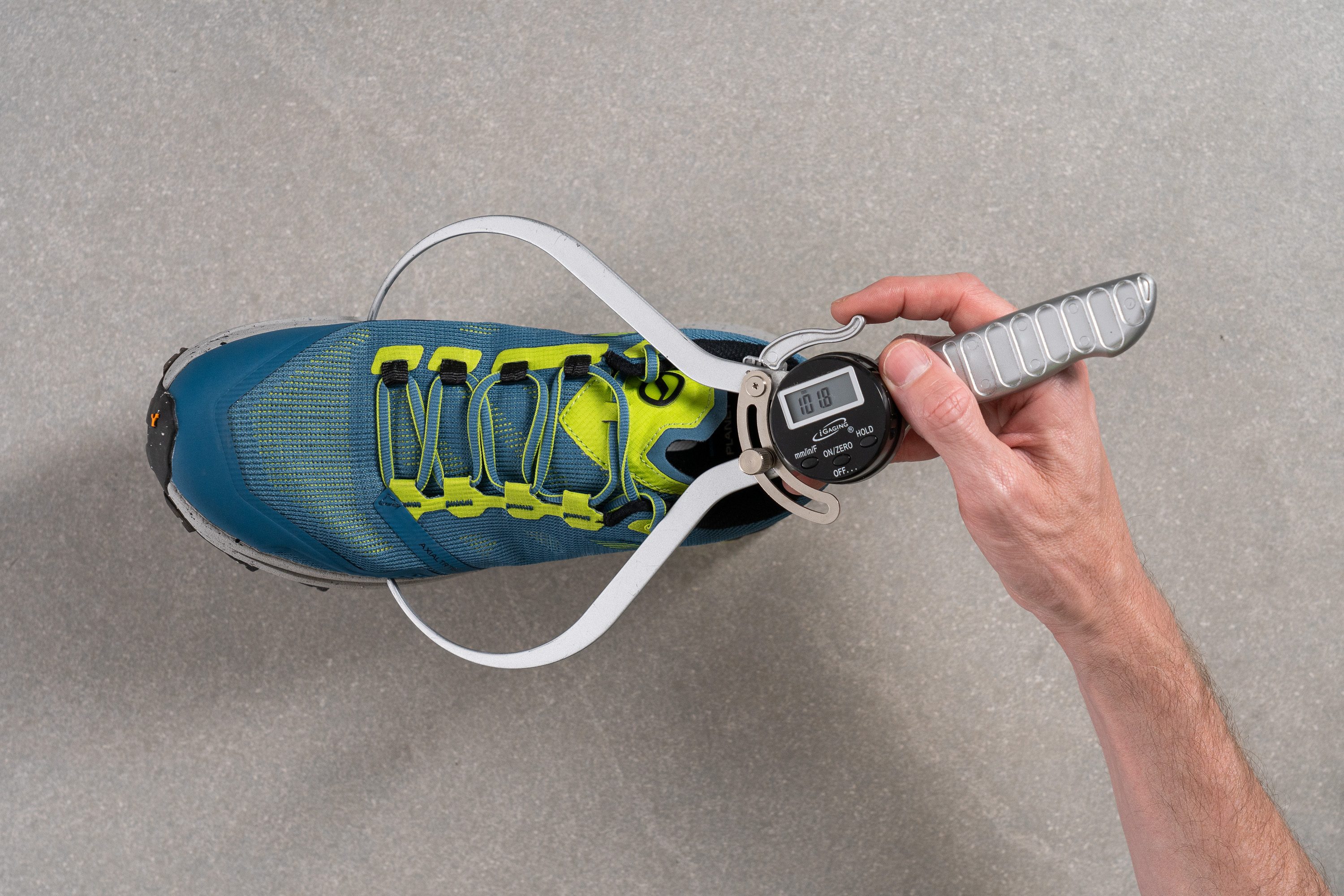
This test follows an older methodology, which is why you don't see recently tested shoes in the chart. Results from different methodologies can not be compared.
| Spin Planet | 101.8 mm |
| Average | 98.9 mm |
Toebox width
Our second measurement in the big toe area was 76.1 mm, which clarified our initial experience.
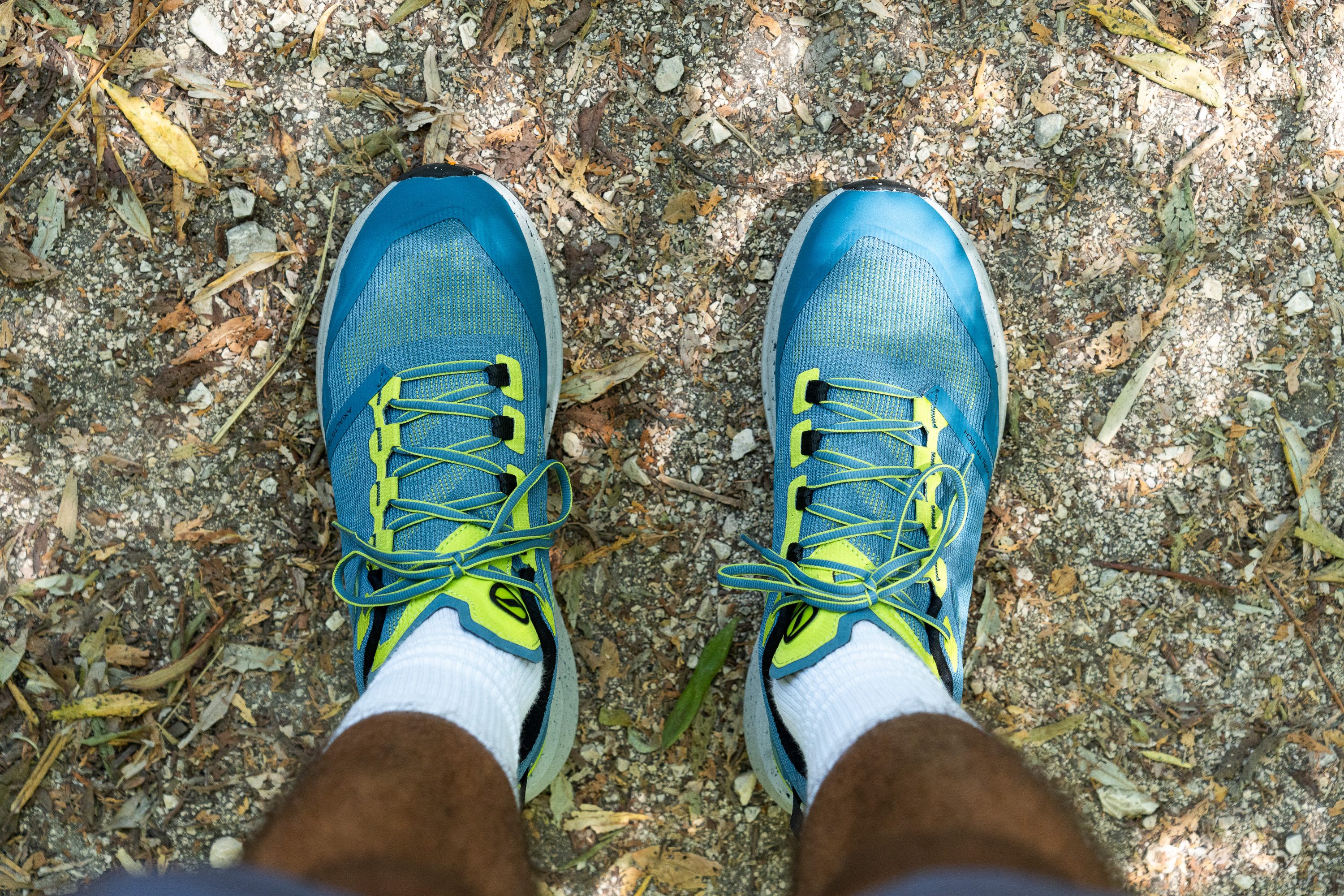
When we first tested the shoes in the lab, they felt fairly average—slightly on the narrow side. This can be attributed to the pointy, tapered toebox. And don't expect it to stretch, it's not going to happen with those TPU overlays in the toe cap.
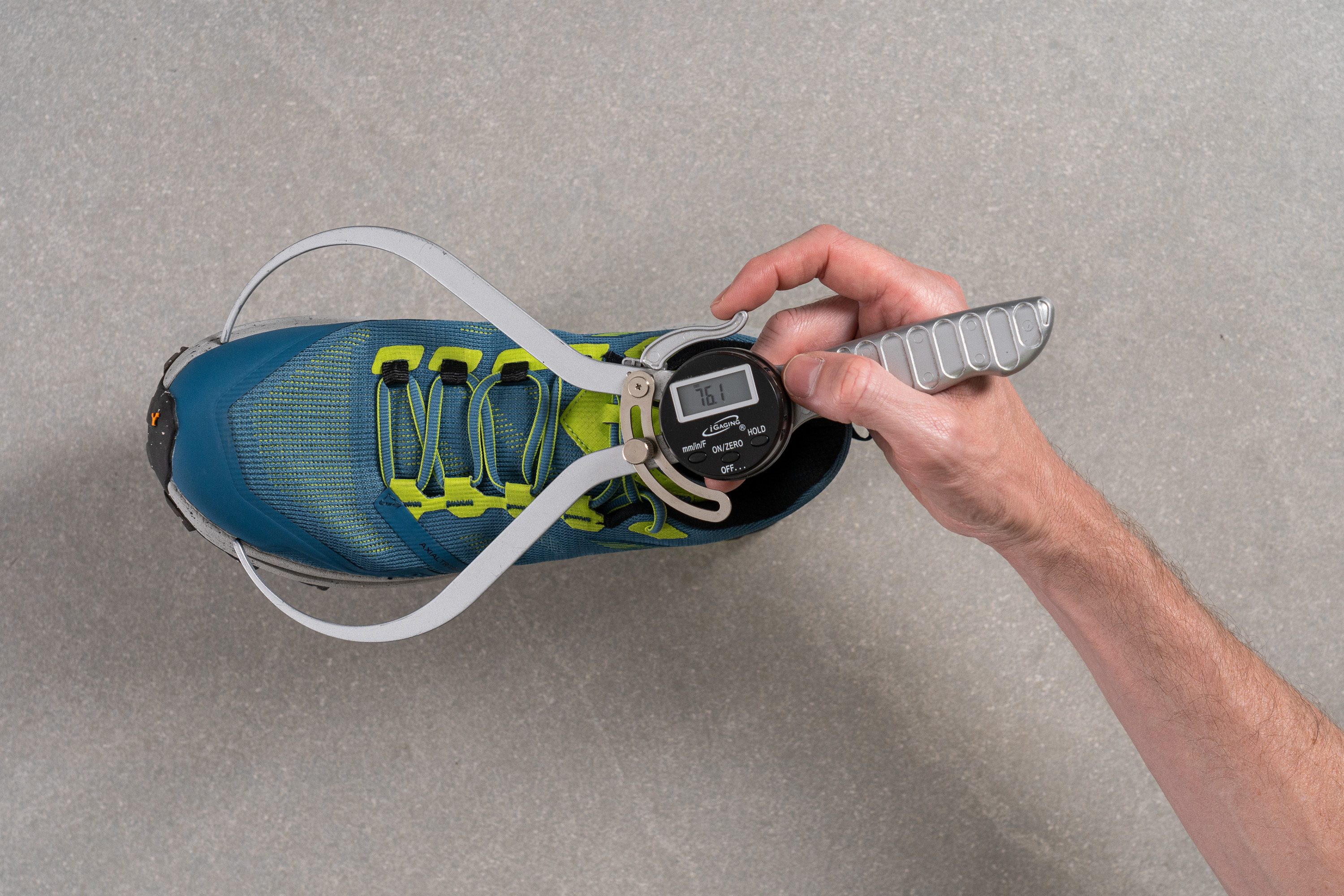
This test follows an older methodology, which is why you don't see recently tested shoes in the chart. Results from different methodologies can not be compared.
| Spin Planet | 76.1 mm |
| Average | 79.3 mm |
Traction / Grip
Lug depth
Returning to the outsole, the Scarpa Spin Planet features 3.2-mm lugs, ideally suited for easy terrain and capable of handling some moderate challenges. For example, we found that it performs best on gravel roads and well-maintained trails.
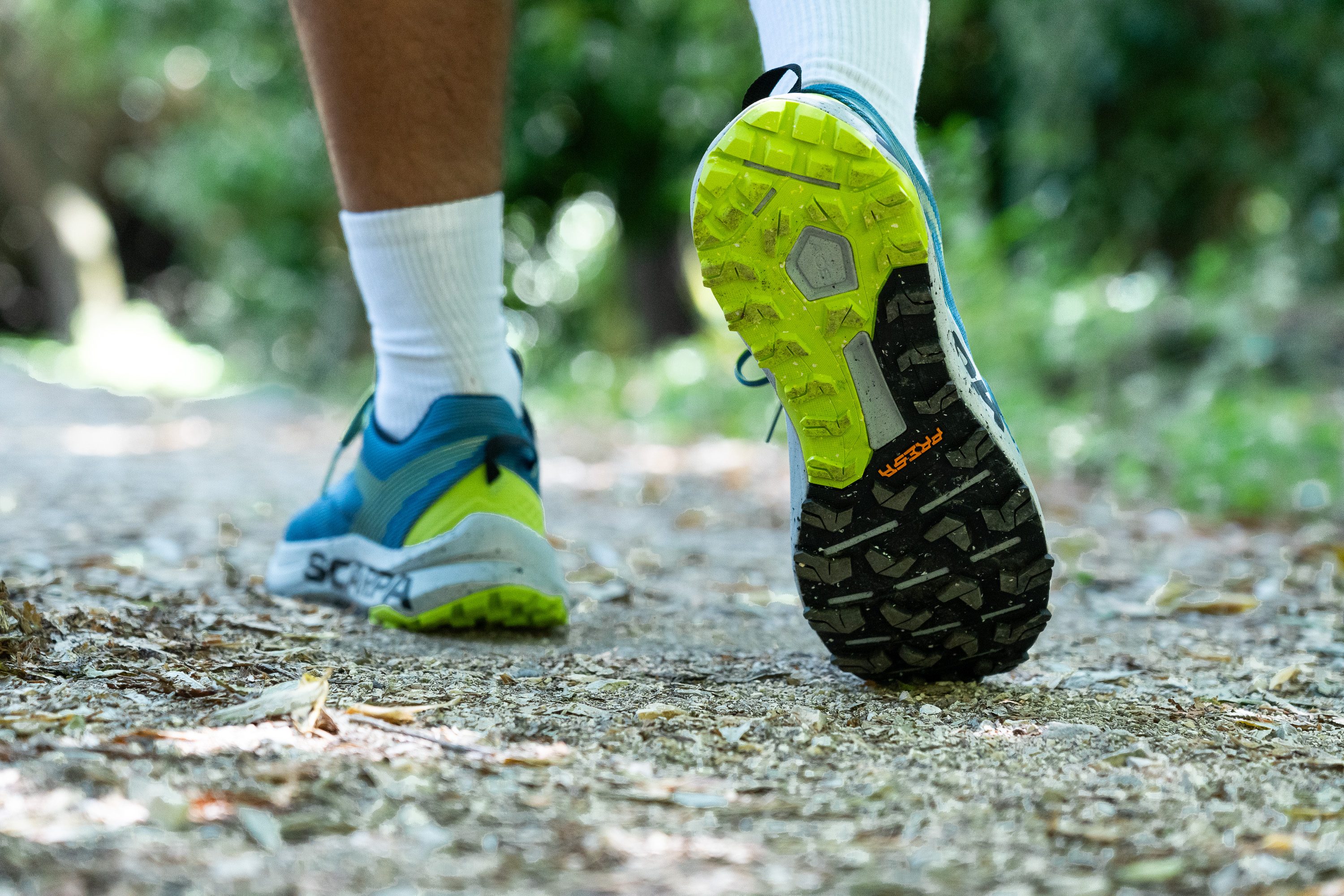
We must also commend Scarpa for the intelligent design of the outsole. It incorporates lugs of varying angles and sizes, thoughtfully arranged to improve propulsion in the forefoot, braking in the heel, and stability across the midfoot and forefoot. And we must say that despite its complexity, it never feels overengineered.
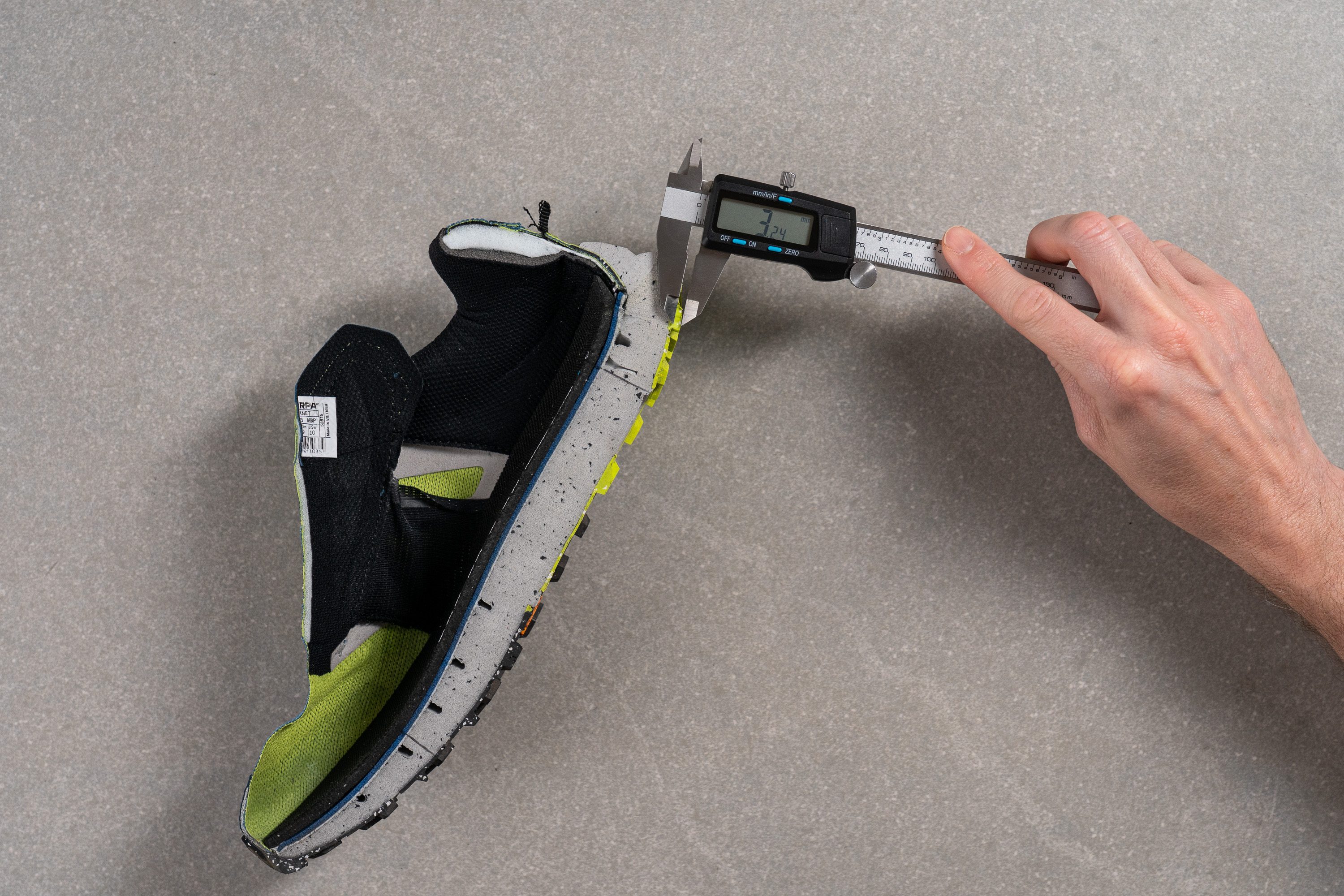
| Spin Planet | 3.2 mm |
| Average | 3.5 mm |
Flexibility / Stiffness
We proceeded to test the longitudinal stiffness—a crucial attribute for those planning to use the shoe as a true all-rounder.
We discovered it took a force of 29.2N to flex the shoe to a 90-degree angle. This stiffness is around average, and although it's slightly stiffer than preferred for everyday comfort, it still manages well.
This test follows an older methodology, which is why you don't see recently tested shoes in the chart. Results from different methodologies can not be compared.
| Spin Planet | 29.2N |
| Average | 27.1N |
Weight
Right from the start of this lab review, we recognized the impressive breathability of this shoe upon unboxing. Simultaneously, it became clear to us that this thing is exceptionally heavy.
Weighing in at 11.35 oz or 322g, it certainly doesn't provide a lightweight experience. This heft is the price for its dense, high-quality upper and substantial all-around toughness, despite not offering more cushioning than other models that weigh under 10 ounces.
Every design choice involves a trade-off, and Scarpa has opted for durability over lightness here.
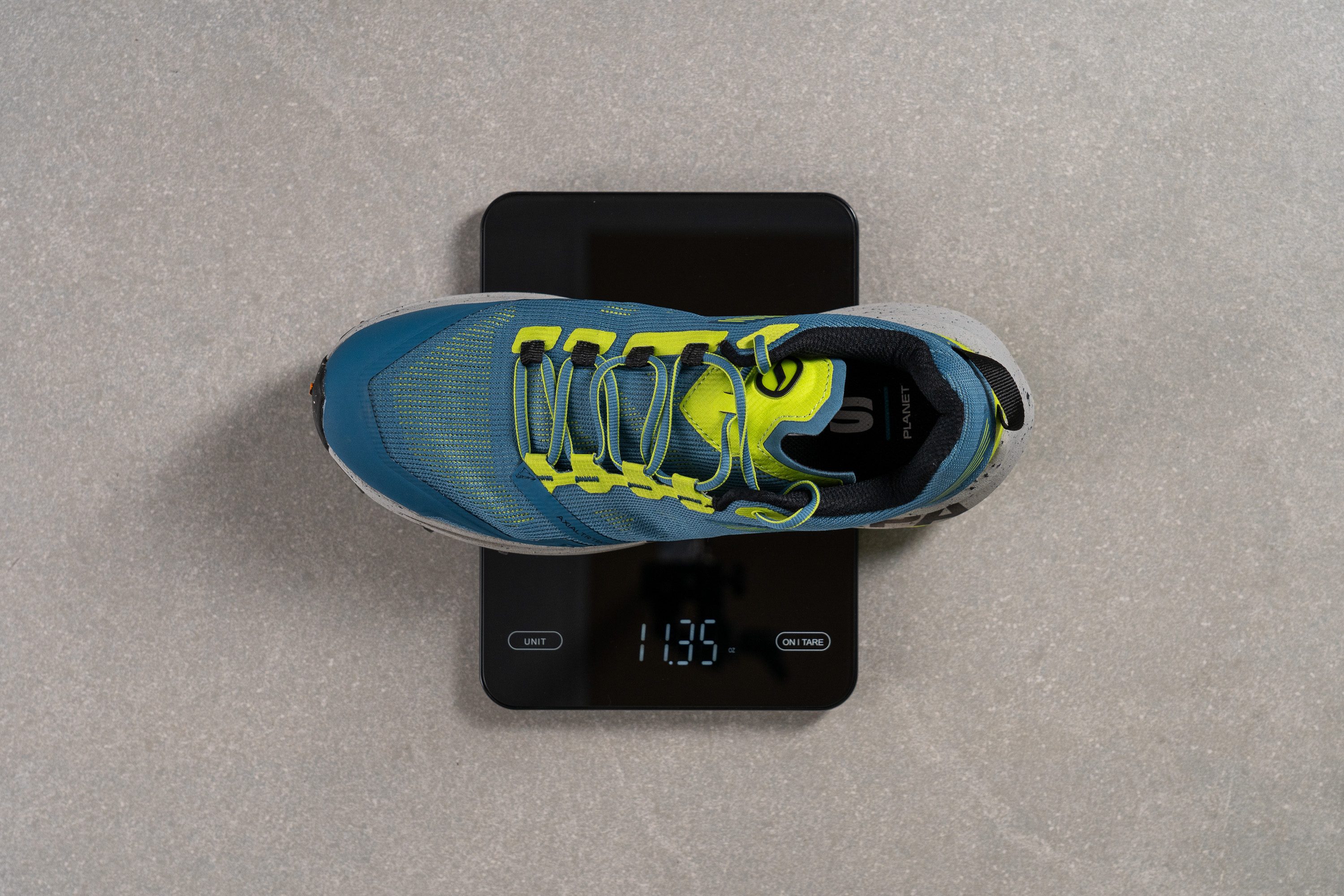
| Spin Planet | 11.4 oz (322g) |
| Average | 10.2 oz (289g) |
Breathability
When we unboxed the Spin Planet, we immediately anticipated its top-notch breathability. Its upper, constructed from a single layer—unlike the typical double-layered designs—clearly promised excellent airflow in the toebox area.
Our smoke-pumping machine test simply confirmed our initial thoughts, earning the shoe a perfect 5-out-of-5 score for breathability. It stands out as one of the few trail shoes to achieve such a mark in our lab, making it a stellar choice for summer adventures when the sun is blazing.
Further breathability tests were equally revealing. Using a light, we mapped the ventilation across different parts of the upper. The contrast was striking—from the highly breathable toebox to the medial part where the shoe trades all ventilation for increased durability and stability.
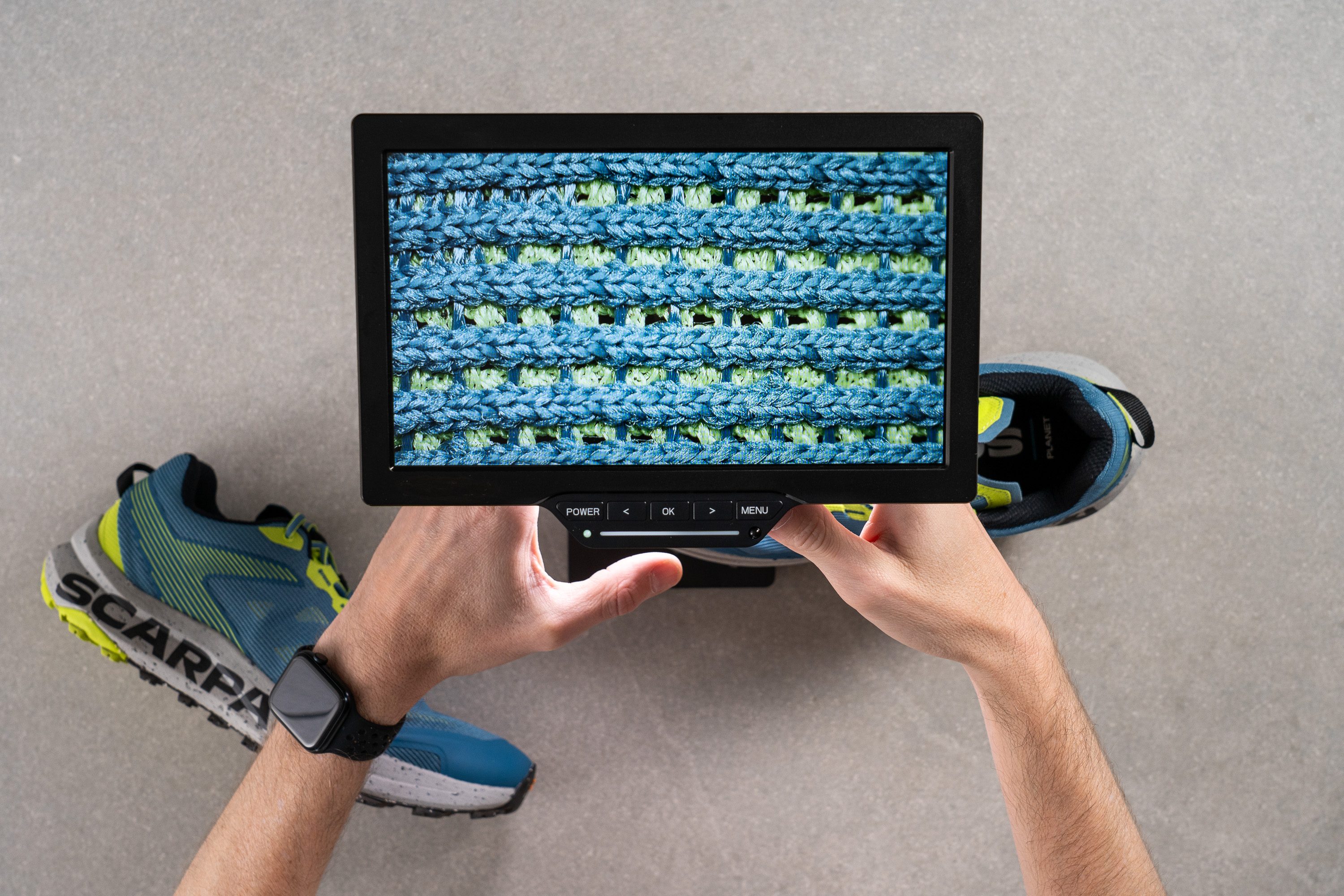
We were impressed by the toebox's superb ability to expel smoke, prompting us to examine it under a microscope.
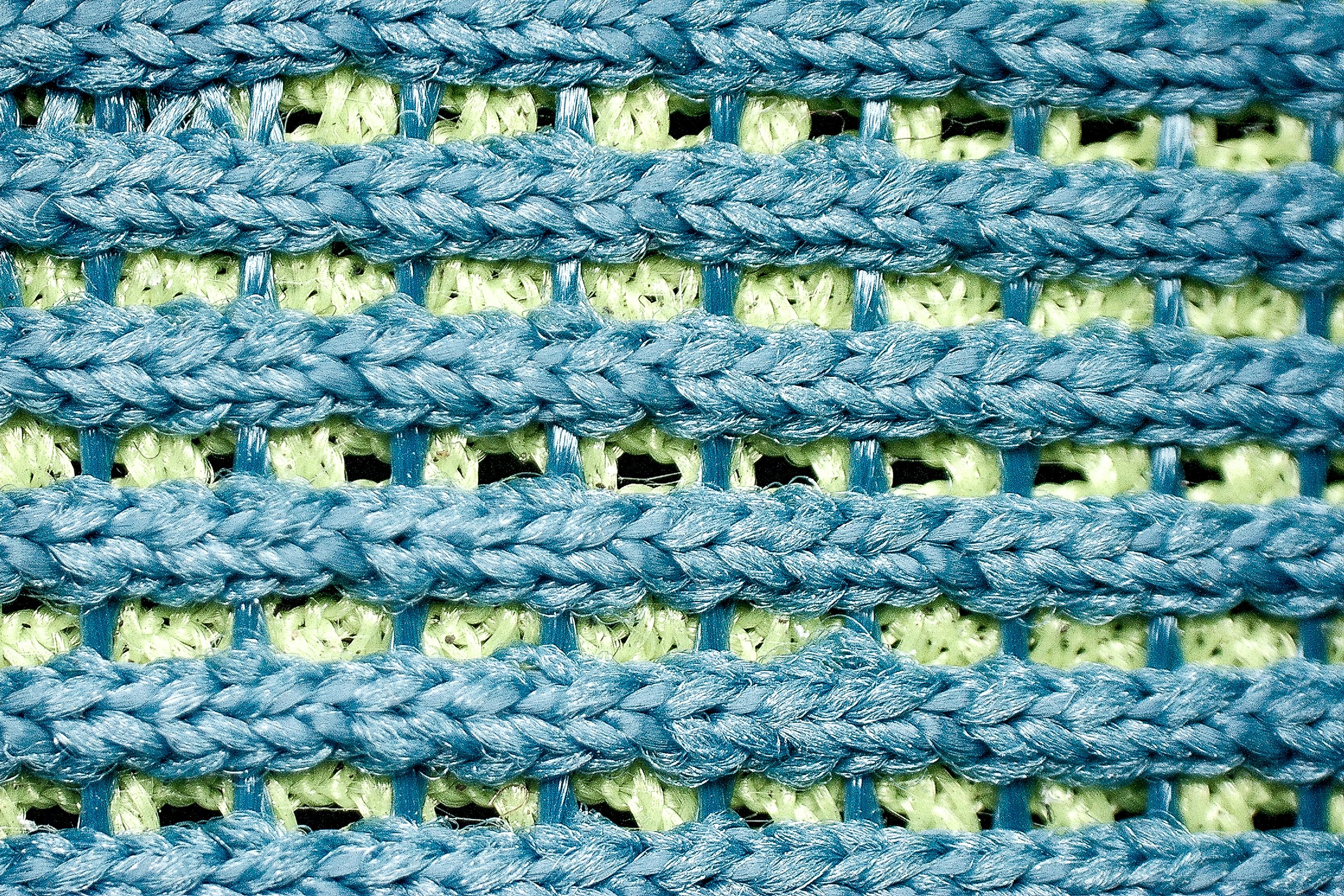
See those gaps? They are the only reason for its exceptional airflow. We also foresee great durability, thanks to the interlaced design mixing different types of fibers—but more on this later.
Another bonus point for Scarpa is that the upper is crafted entirely from recycled microfibers. This is important because it moves beyond the common greenwashing where brands claim their products are made from "recycled materials," only for us to find that it's often as little as 10% or 20% recycled.
| Spin Planet | 5 |
| Average | 3.3 |
Stability
Lateral stability test
The Spin Planet delivers on stability, which comes as no surprise. The lack of plush foam, combined with features like TPU reinforcements in the upper, helps keep the foot well-centered, ensuring a stable ride. However, there are a few points to highlight about this feature, so let’s explore them further.
Torsional rigidity
One major contributor to the notable stability of the Spin Planet is its incredibly high torsional rigidity. This carbon-plate-like stiffness, which we rated at 5/5, was somewhat unexpected but is definitely noticeable during runs.
| Spin Planet | 5 |
| Average | 3.6 |
Heel counter stiffness
On the other hand, the heel counter of the Spin Planet resembles those found in the road daily trainers used for log our daily miles. In our tests, we found it somewhat flexible, giving it a score of 3 out of 5.
| Spin Planet | 3 |
| Average | 3 |
Midsole width - forefoot
When we measured the midsole dimensions, we were slightly surprised to find only 110.9 mm in the forefoot, although this is not unusual for trail shoes.
Often, brands opt for a narrower forefoot to enhance the shoe's agility and manageability for sharp turns, and to reduce weight. That's exactly what happened here.
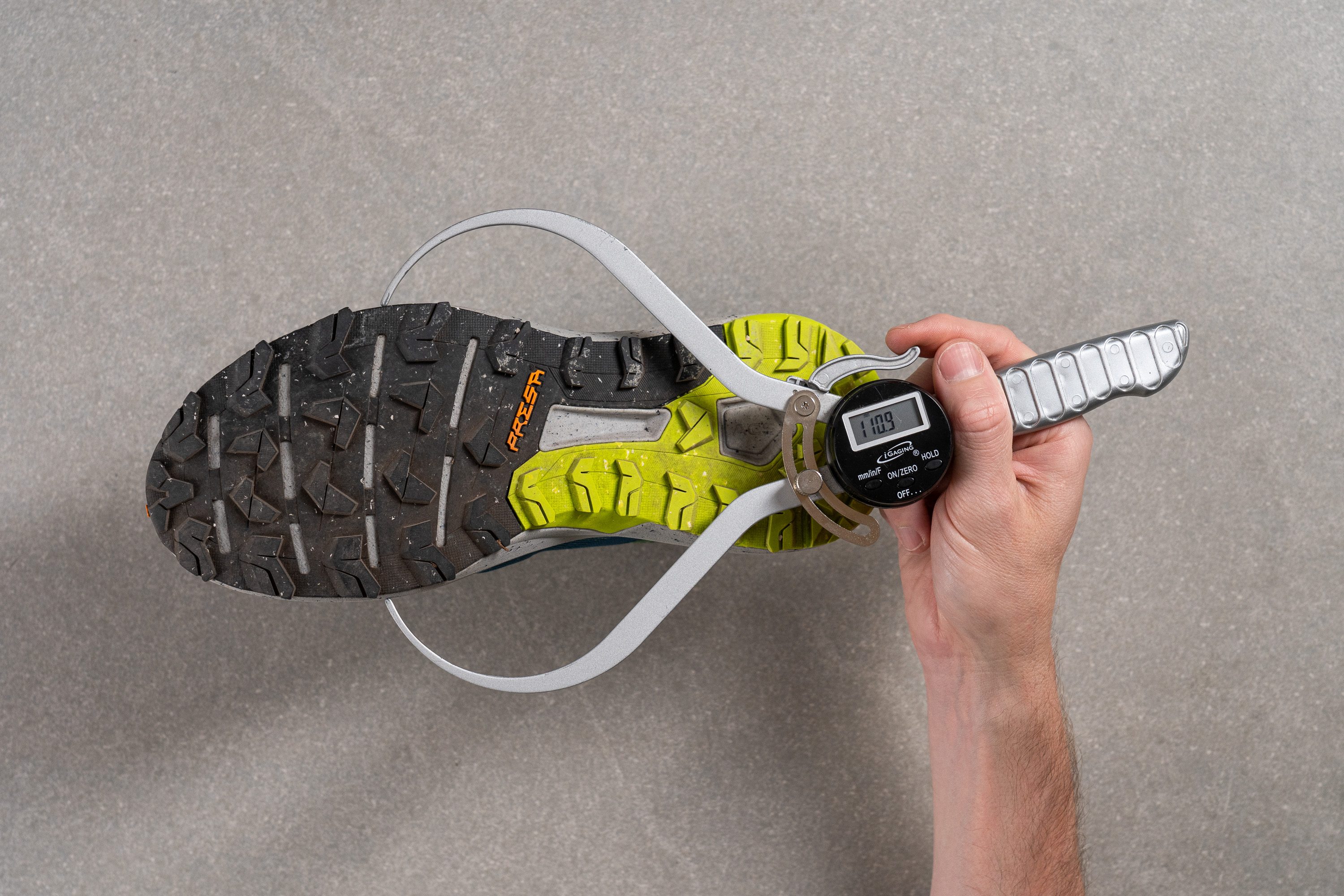
| Spin Planet | 110.9 mm |
| Average | 112.8 mm |
Midsole width - heel
The heel tells a different story, and we celebrate that. Scarpa went a bit broader here, up to 95.1 mm, which is great news for rearfoot strikers!
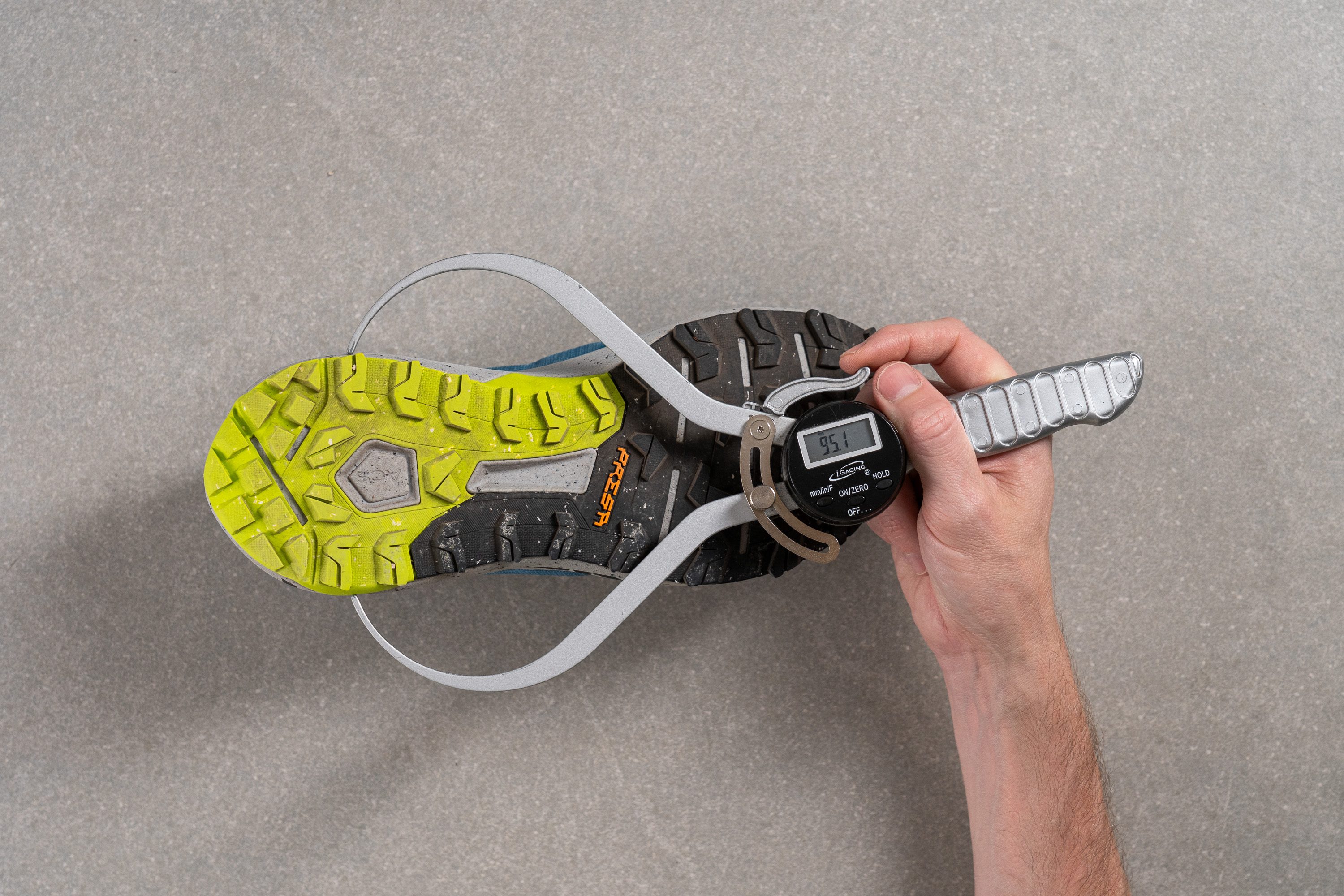
| Spin Planet | 95.1 mm |
| Average | 89.9 mm |
Durability
Toebox durability
We've already demonstrated that the Spin Planet's upper offers amazing ventilation. Facing a tougher challenge next, we evaluated its durability with our Dremel.
While the TPU protection vanished quickly, the recycled engineered mesh proved robust, holding up well under stress. It earned a solid 3/5 rating for the Spin Planet—not the best, but certainly not the worst either.
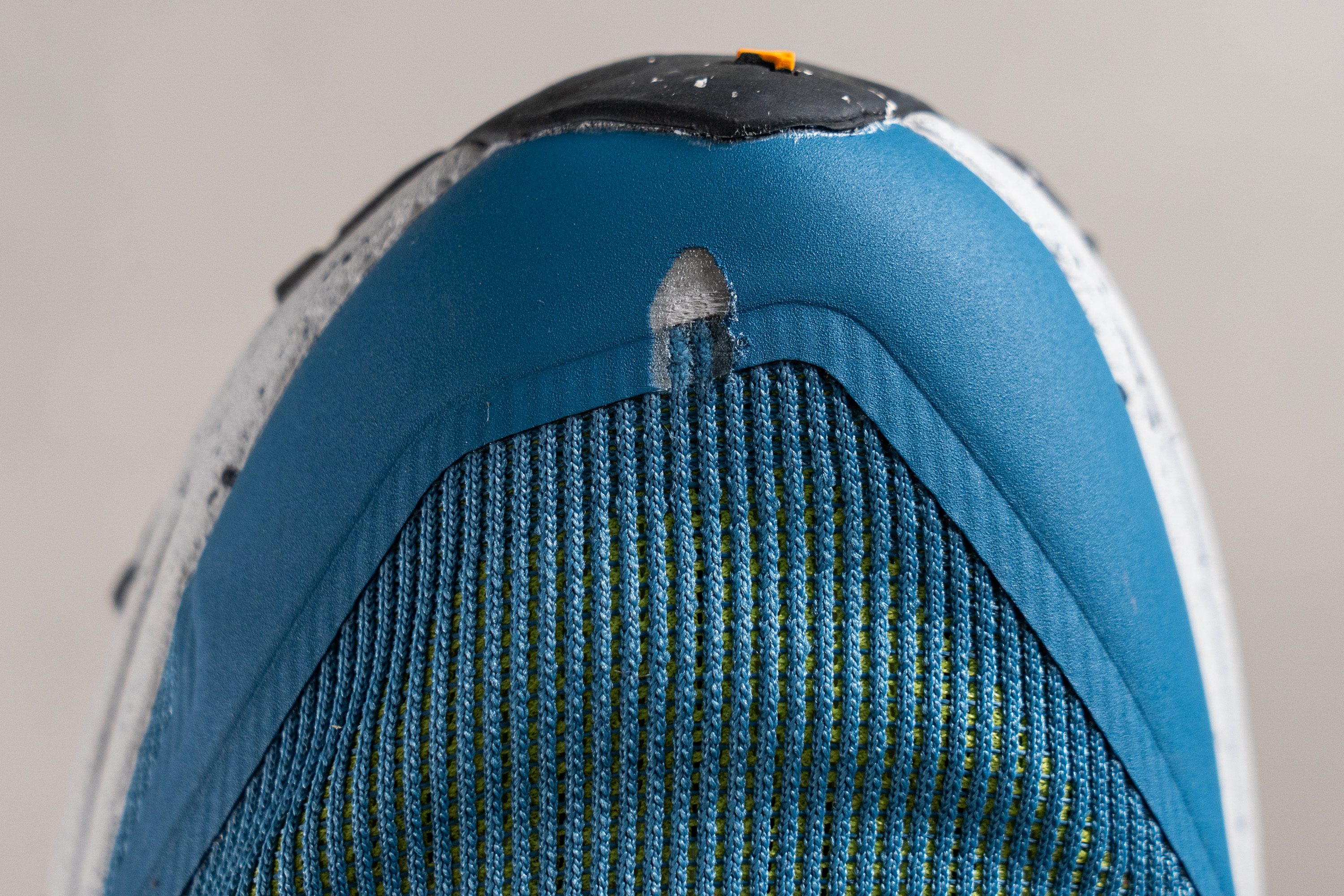
| Spin Planet | 3 |
| Average | 3.1 |
Heel padding durability
Now it's time to examine the heel padding—a critical area for trail runners.
The Spin Planet soared beyond our expectations here, earning another perfect 5/5 score. We're now keen to find out if the outsole will continue this trend!
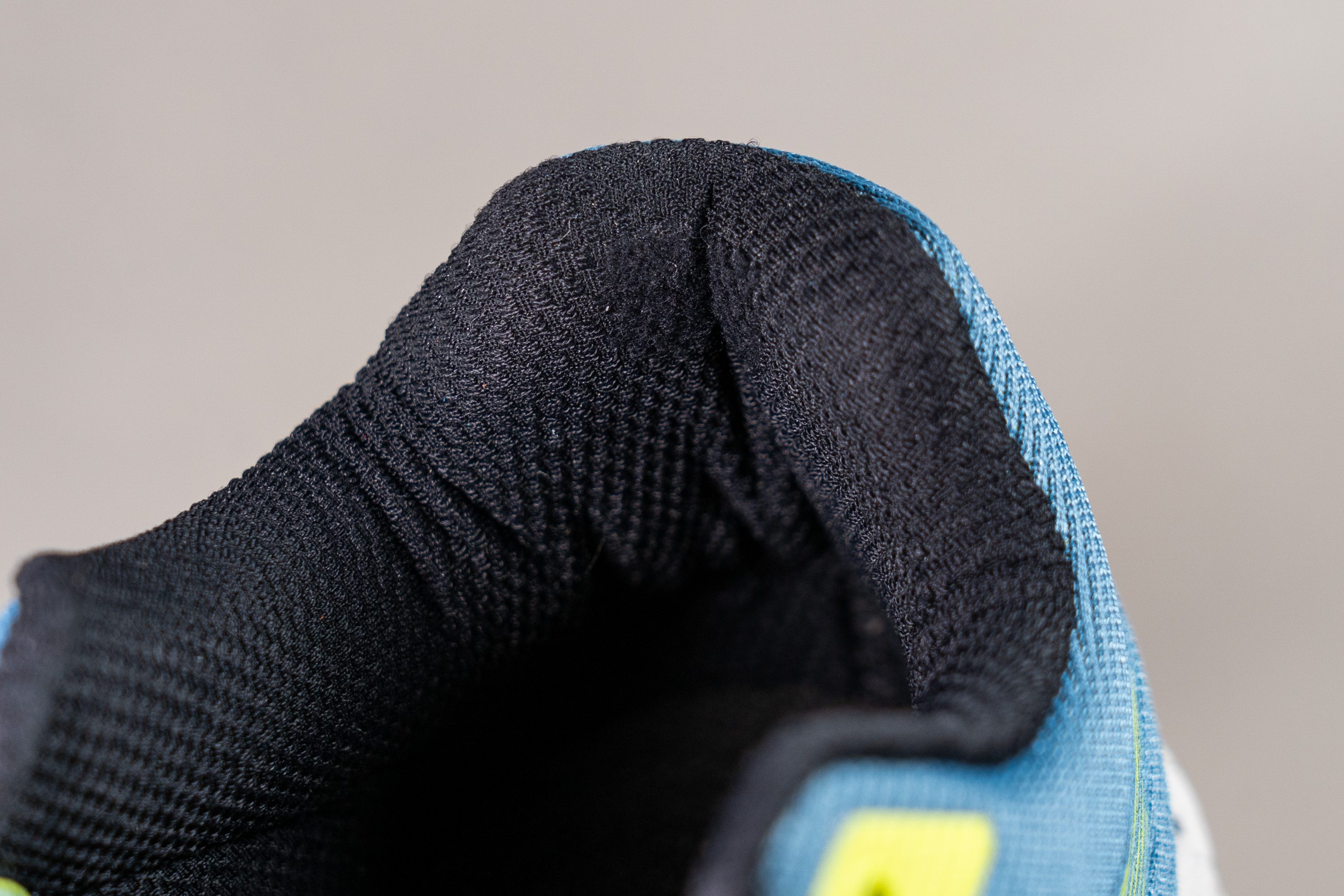
| Spin Planet | 5 |
| Average | 3 |
Outsole hardness
Starting with the outsole, we tested the hardness of the PRESA TRN-06 rubber, which measured at an average 83.9 HC.
Scarpa designed this outsole to perform across all types of terrain, enhancing the shoe's door-to-trail appeal. We can confirm that the traction is good, although not outstanding.
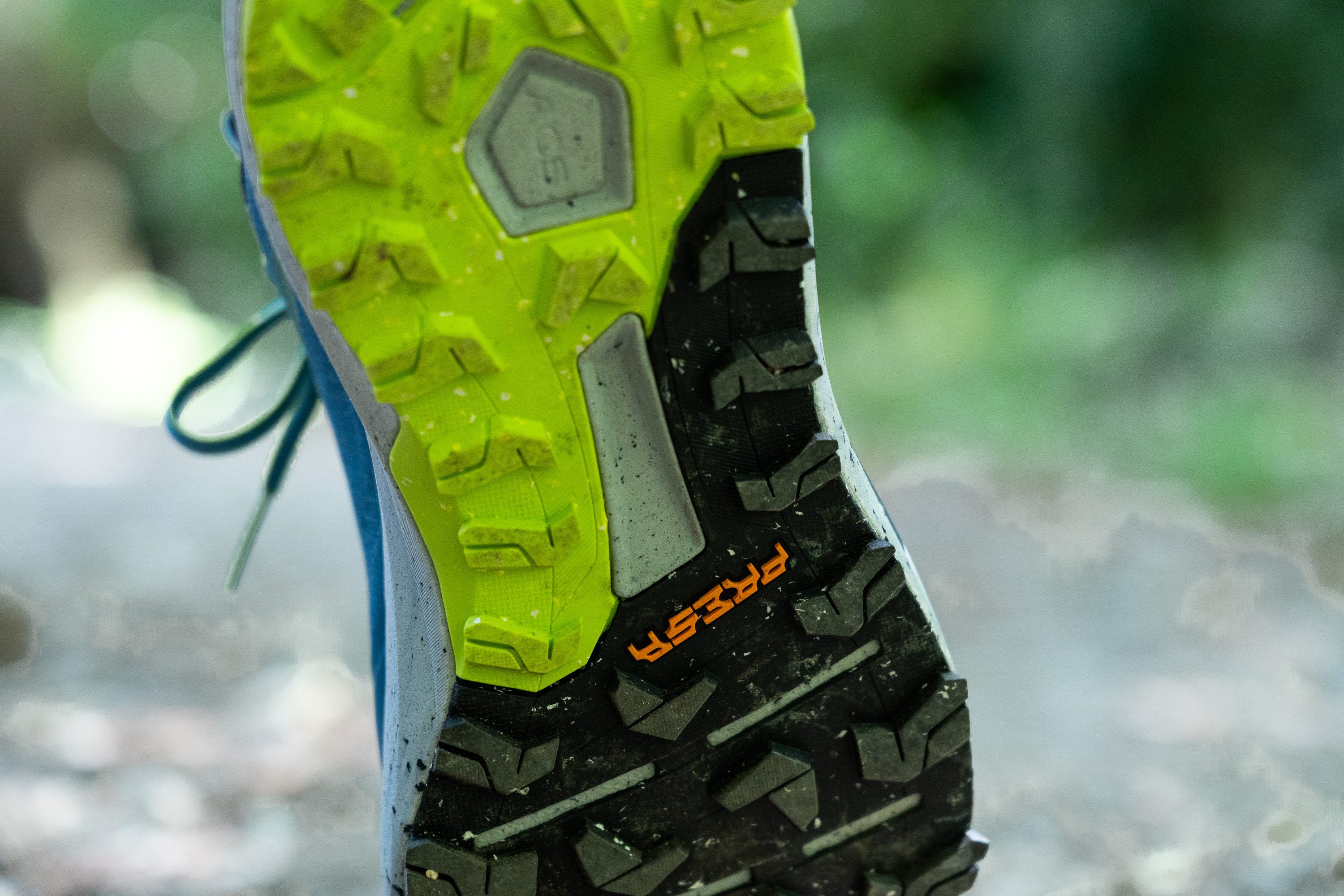
Additionally, for those interested in sustainability, the outsole incorporates 30% recycled rubber, which surpasses nearly every other outsole on the market today in terms of environmental friendliness.
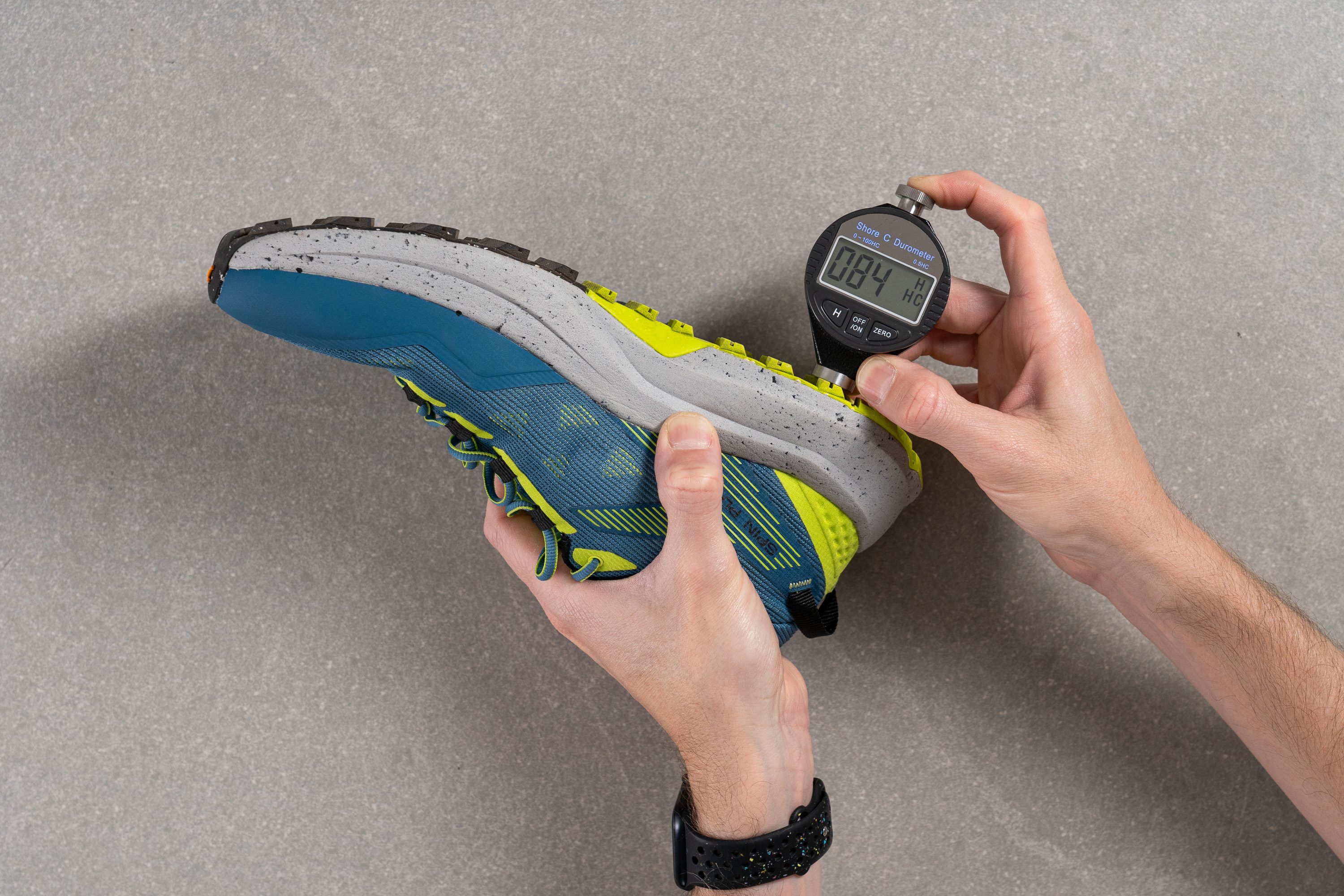
| Spin Planet | 83.9 HC |
| Average | 85.8 HC |
Outsole durability
We were especially eager to conduct our final Dremel test, given the Spin Planet's solid performance up to this point.
However, this time we recorded a below-average result of 1.2 mm. While not overly concerning, we had hoped for better, especially considering the shoe's all-terrain appeal.
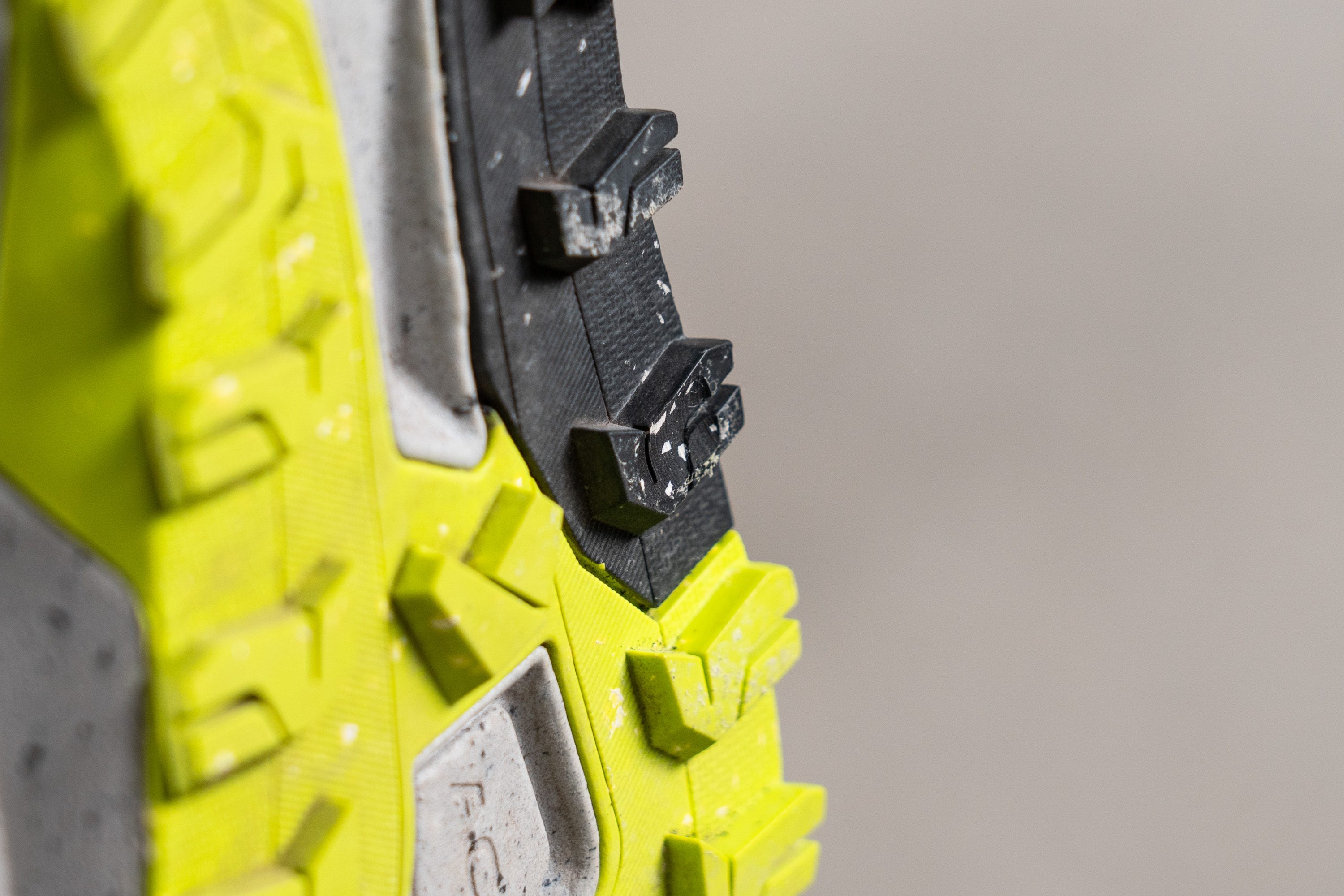
| Spin Planet | 1.2 mm |
| Average | 0.9 mm |
Outsole thickness
We discovered that the outsole is thinner than expected, particularly notable since there's no rock plate underfoot for added protection. Consequently, we recommend steering clear of the most hazardous trails when running with this model.
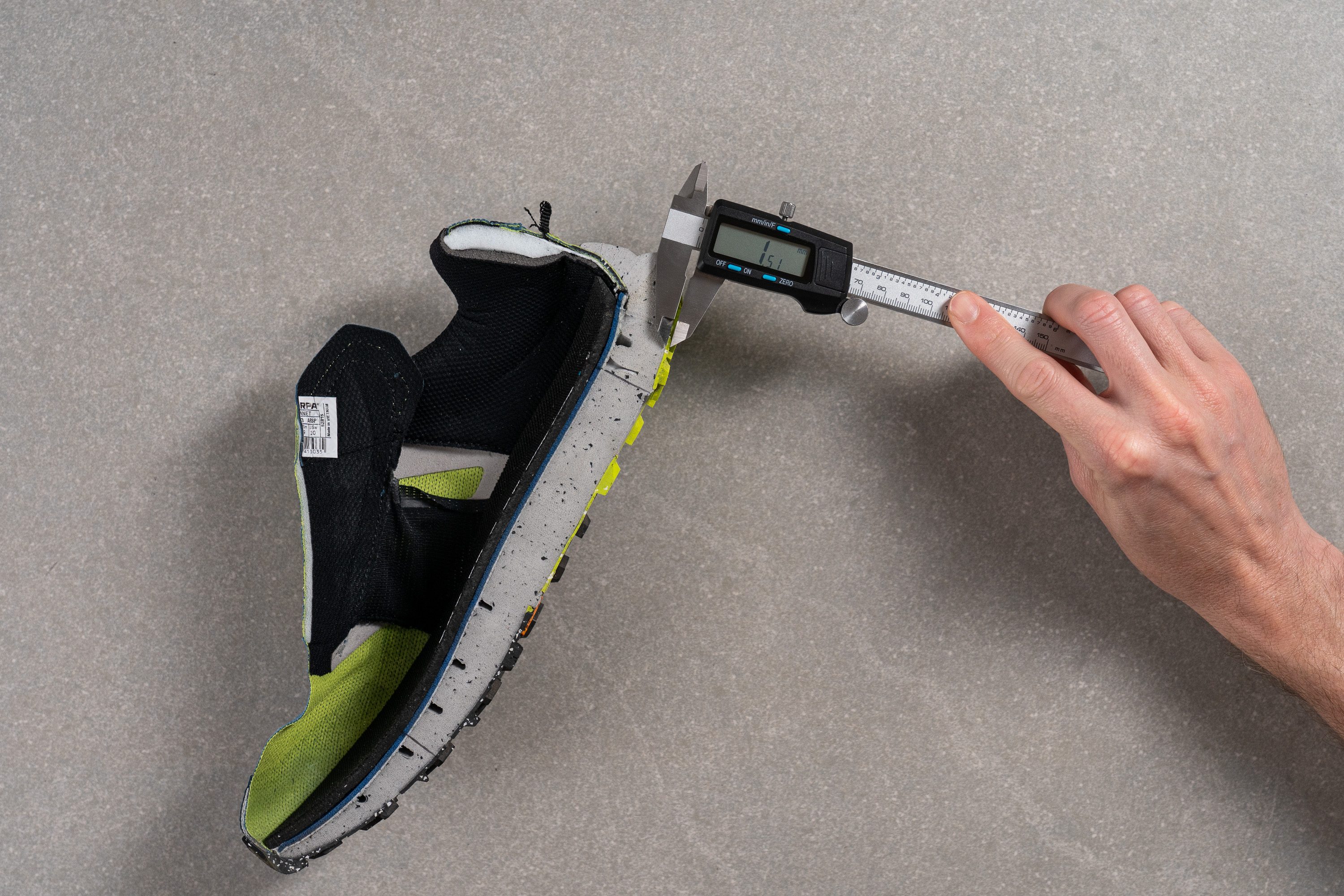
| Spin Planet | 1.5 mm |
| Average | 2.2 mm |
Misc
Insole thickness
The insole of the shoe is quite basic, with a thickness of just 3.9 mm—slightly less than what we typically encounter in our lab tests.
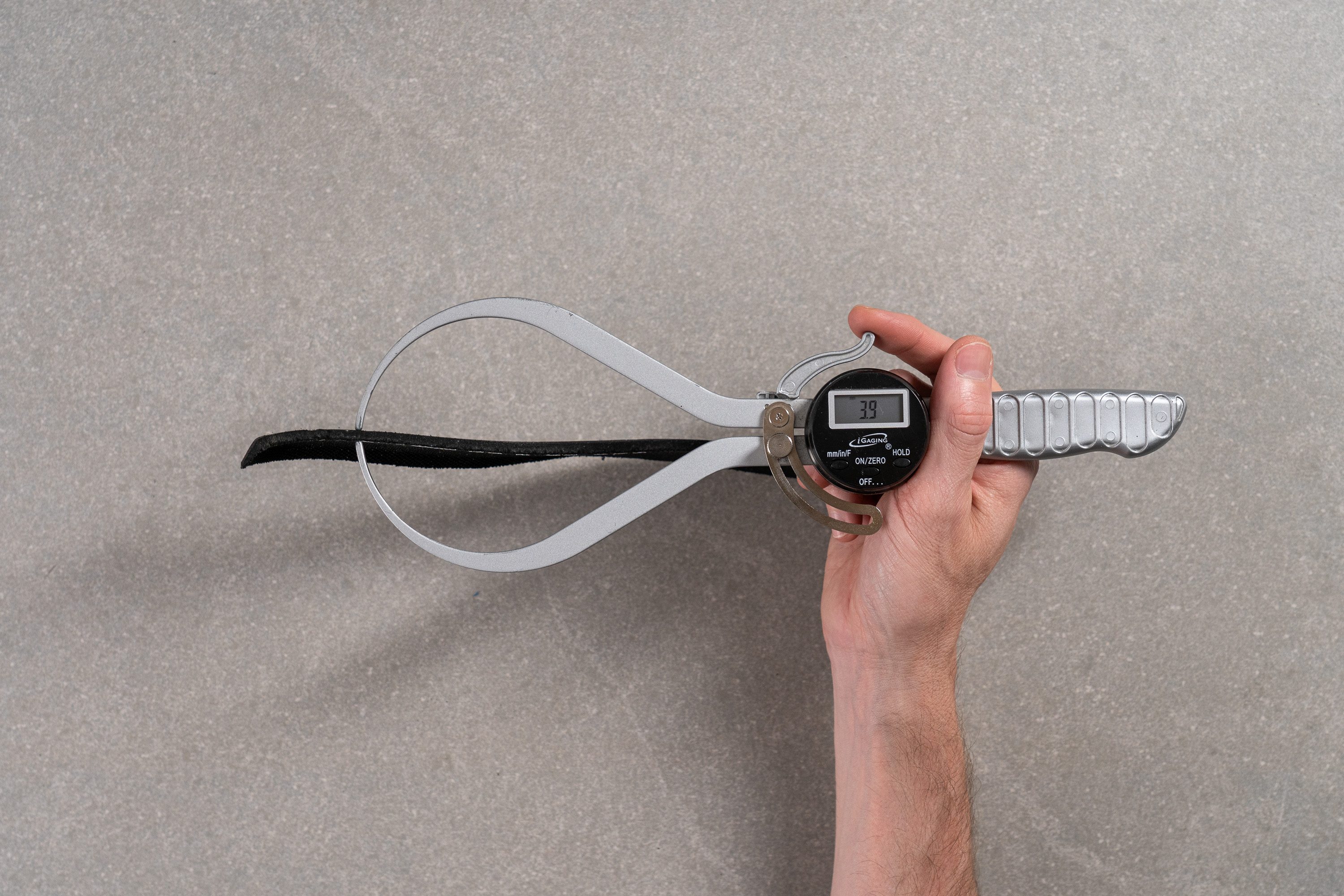
| Spin Planet | 3.9 mm |
| Average | 4.7 mm |
Removable insole
The insole of this shoe features a standard shape and is not glued or fixed—making it 100% removable.
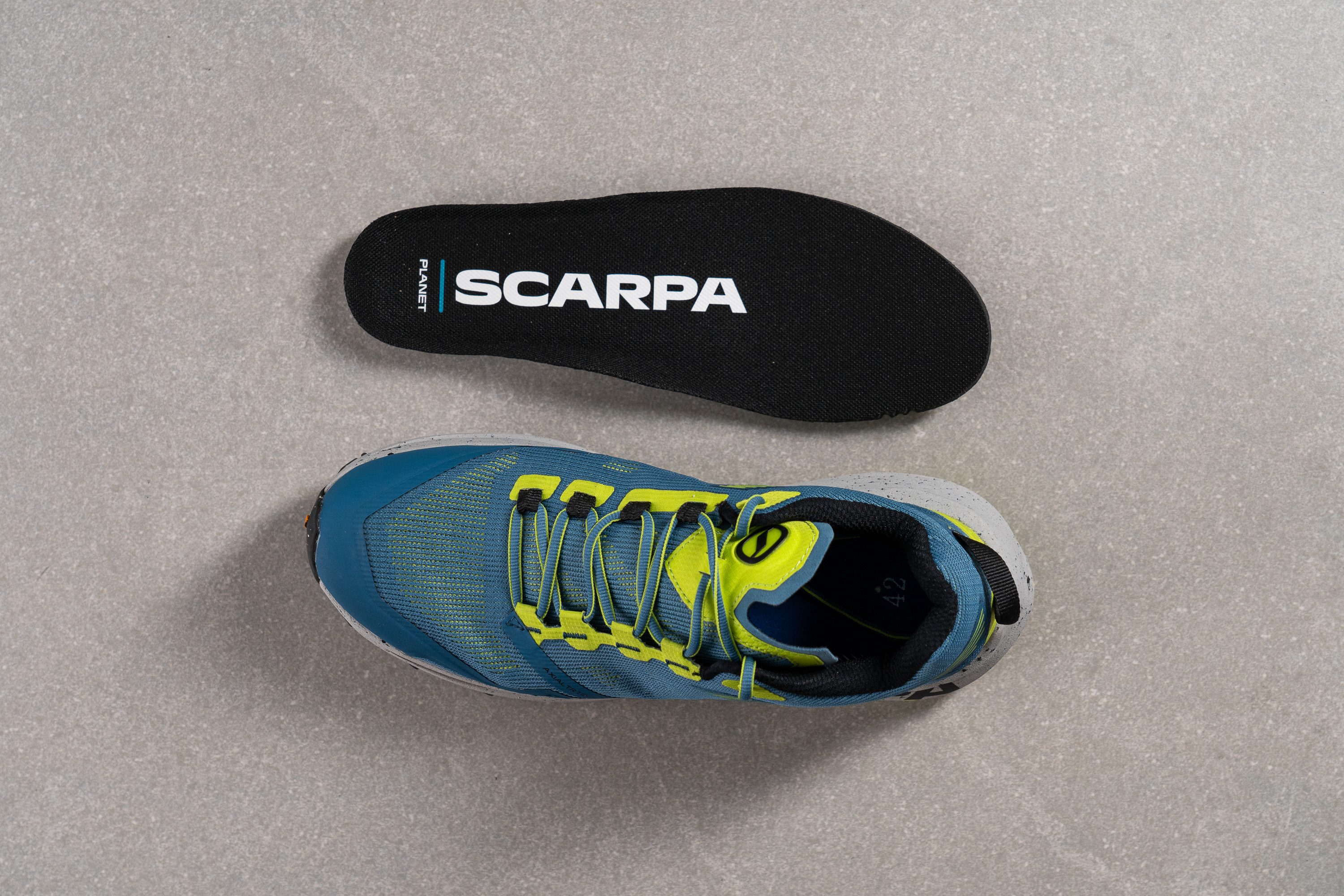
| Spin Planet | Yes |
Midsole softness in cold (%)
When we exposed the shoe to freezing conditions, we took another reading with our durometer and noted a 31% change in softness—an expected result for EVA foam and a decent performance overall.
Curious about how temperature affects foam softness? Our extensive guide can provide detailed insights on that!
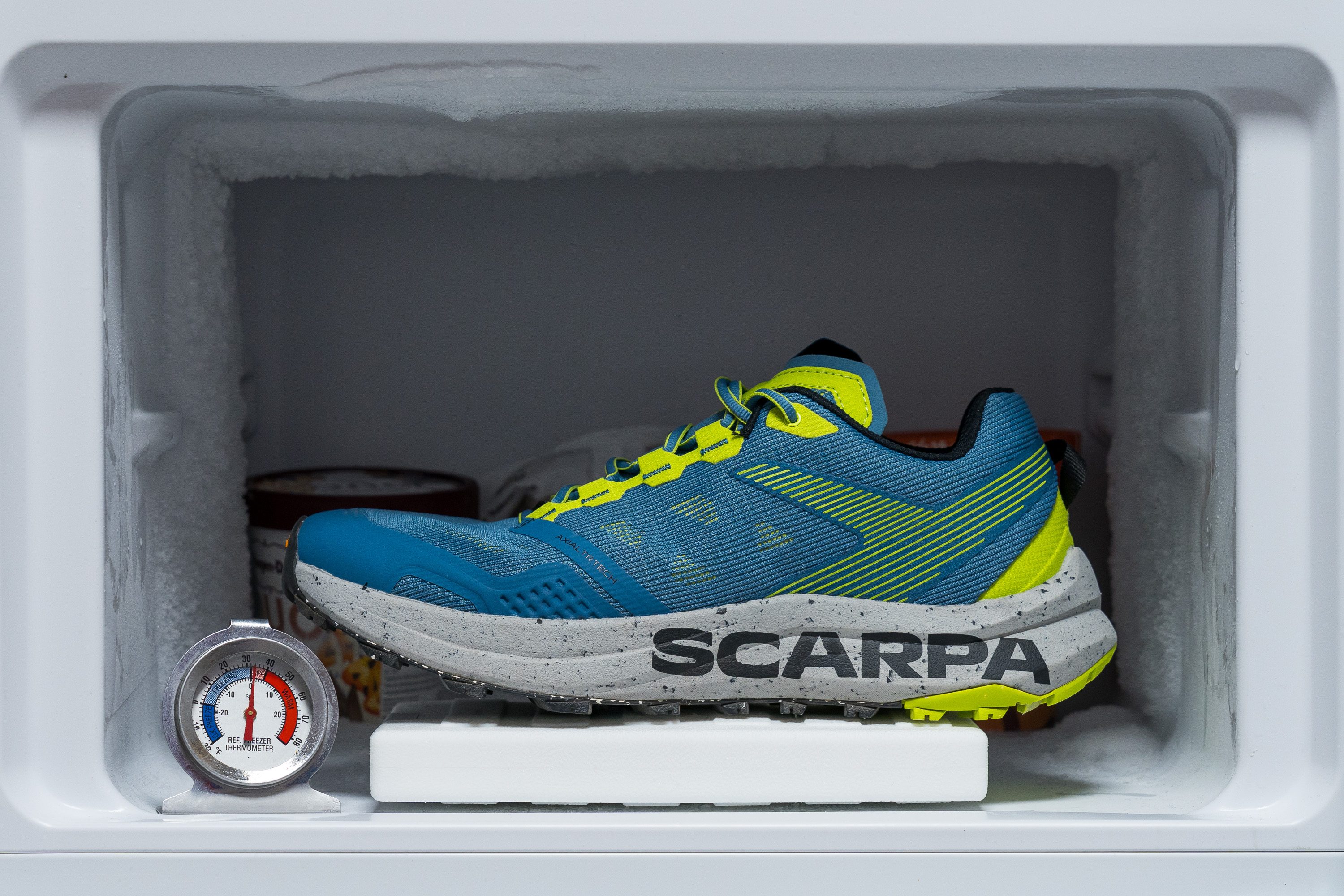
| Spin Planet | 31% |
| Average | 26% |
Reflective elements
One of the notable drawbacks of this shoe is its complete lack of reflective elements.
We believe this omission is a significant oversight in any trail shoe, and it seems to us that Scarpa intends for us to spin the planet...but only during daylight hours!
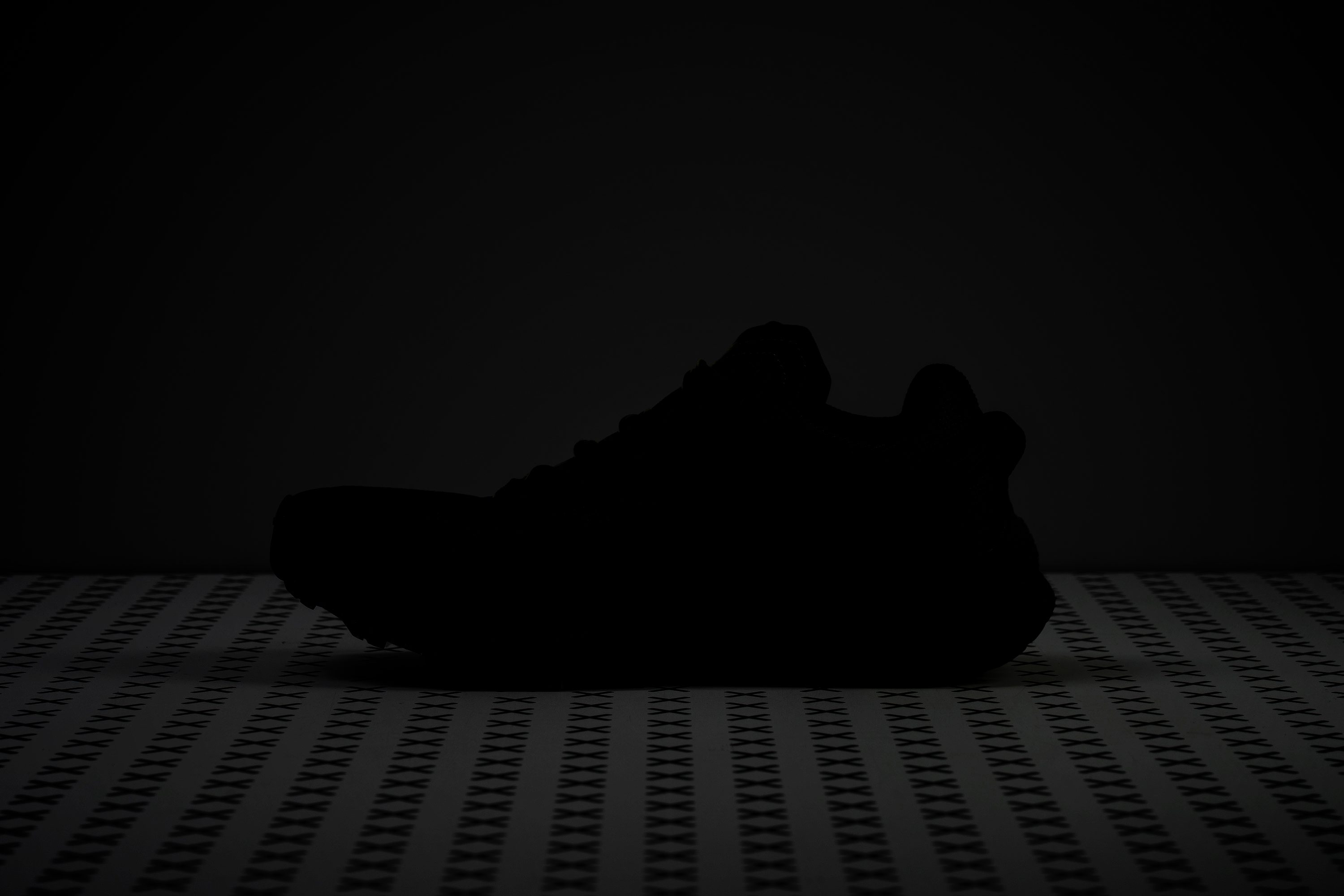
| Spin Planet | No |
Tongue padding
We appreciated the thinner tongue on the Spin Planet, considering the shoe's existing weight challenges—a thicker tongue could have been problematic. Yet, at 4.5 mm, it borders on being too thin for multi-hour adventures, and we advise caution when tightening the laces to avoid discomfort.
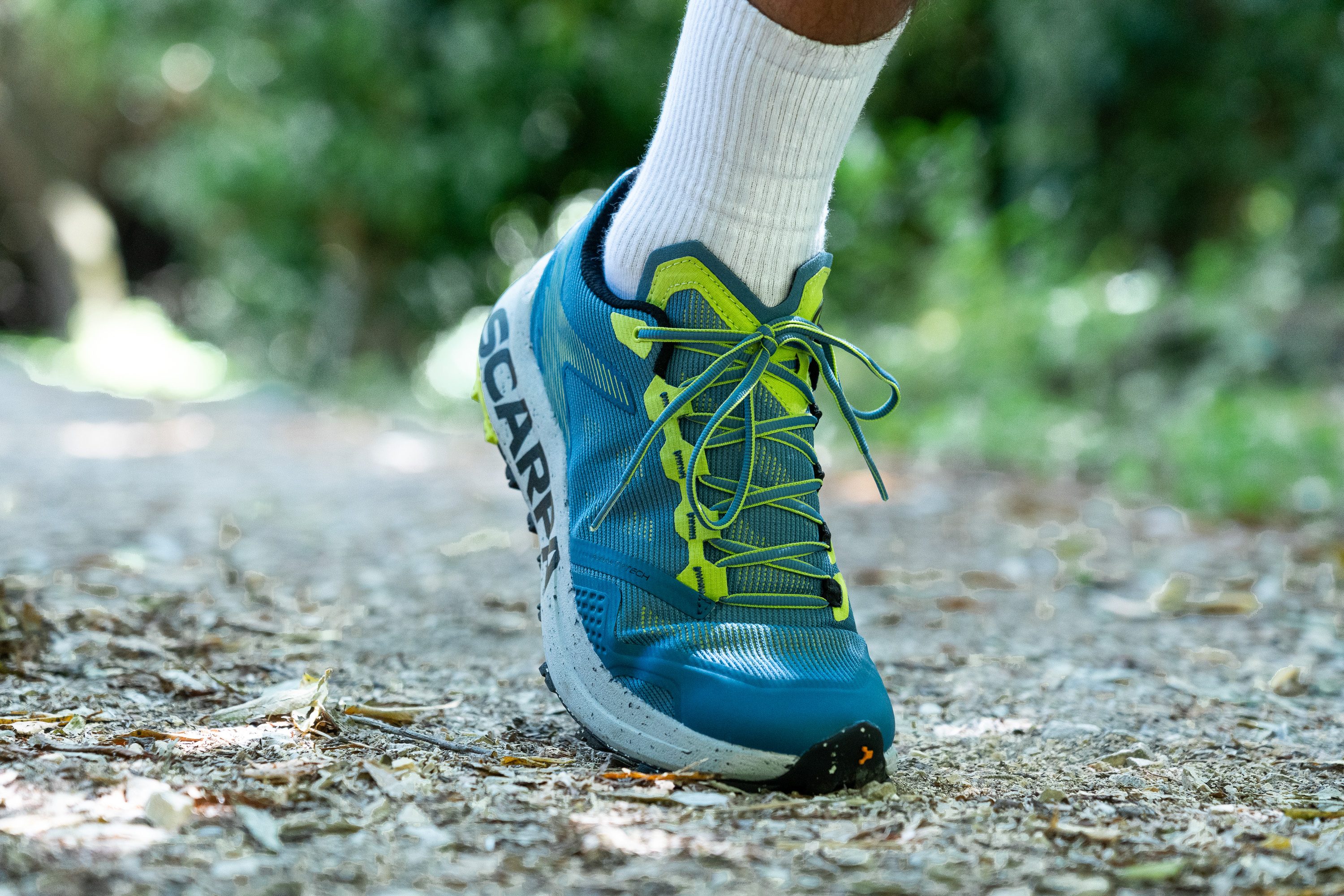
The lacing system features reinforced lace loops—a nice touch—and ends with a single-and-lonely punched eyelet that unfortunately doesn't support a runner's knot. This design may limit adjustability for securing a snug fit.
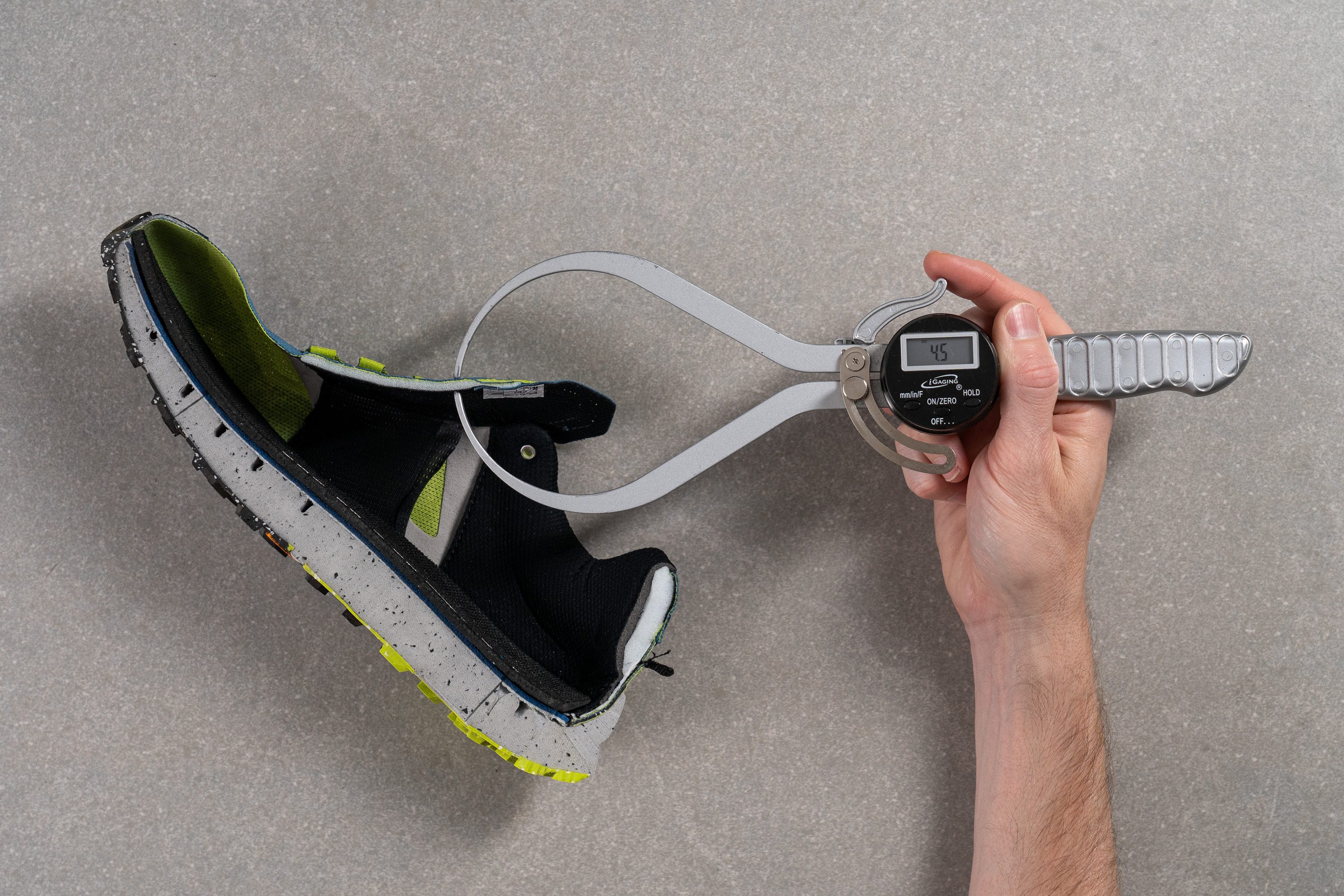
| Spin Planet | 4.5 mm |
| Average | 6.4 mm |
Tongue: gusset type
One of the most bizarre features of the Spin Planet is its tongue. We catalogued it as a fully gusseted one as it's a prolongation of the upper from one side—like a bootie-style upper—and it's fixed to the upper on the other side. They call it Axial TR technology, which of course sounds fancy.
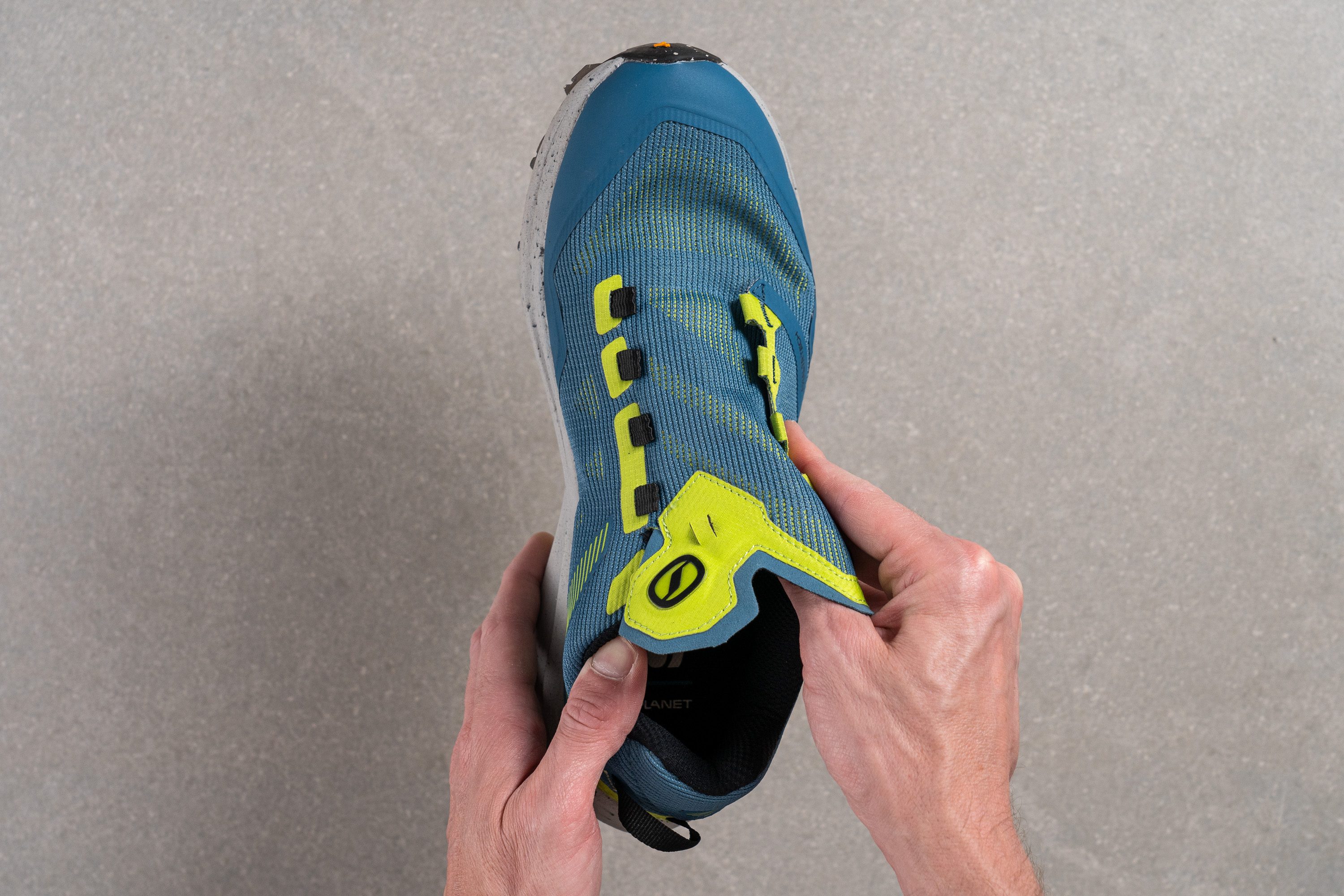
And hey, let us say this clear and straight—congratulazioni to Scarpa for trying something different from every other shoe company, as it would have been incredibly easy for them to throw the run-of-the-mill fully-gusseted tongue in here. But they went the extra mile, and it really works wonders to keep debris outside of the shoe!

| Spin Planet | Both sides (full) |
Heel tab
We already know that Scarpa certainly loves to include unique, one-of-a-kind features into their running shoes, and this asymmetrical finger loop heel tab serves as another great example.
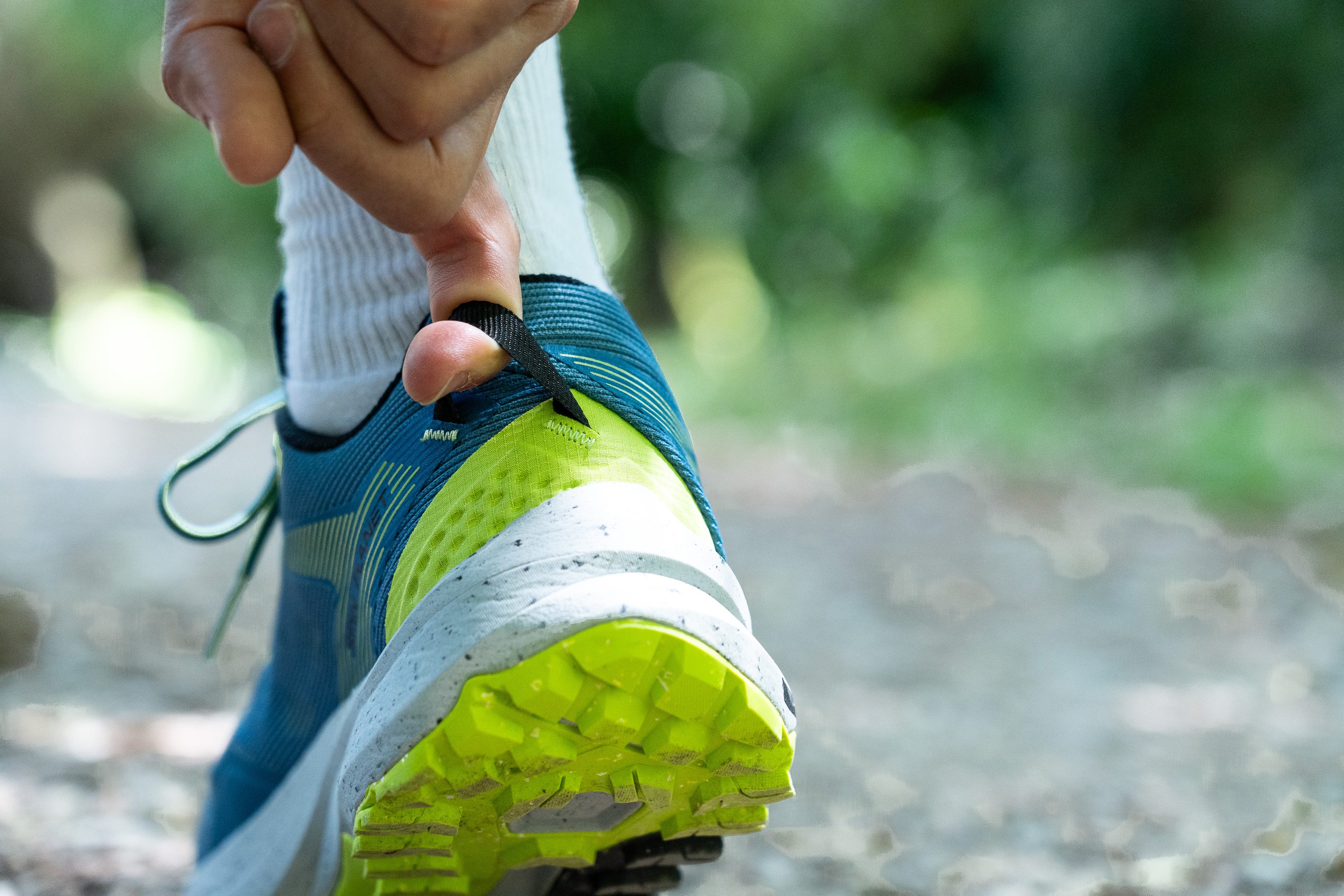
| Spin Planet | Finger loop |
Price
The Scarpa Spin Planet is priced fairly based on its environmentally-friendly build and high quality materials. However, we think that at this price point, the shoe should offer better energy return and a lighter weight. Overall, we're satisfied but expected more performance from this shoe given its cost.
| Spin Planet | $160 |
| Average | $153 |

